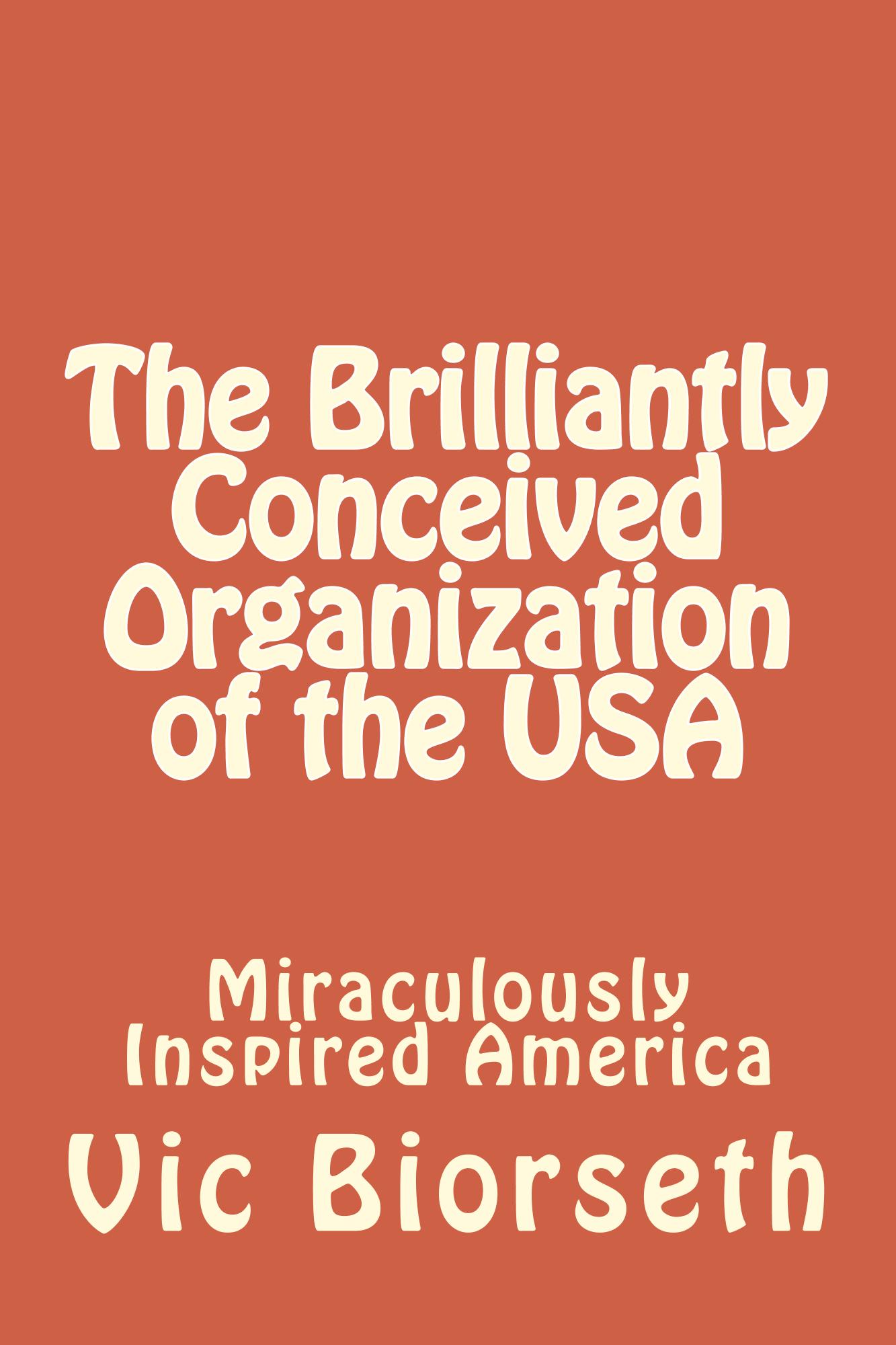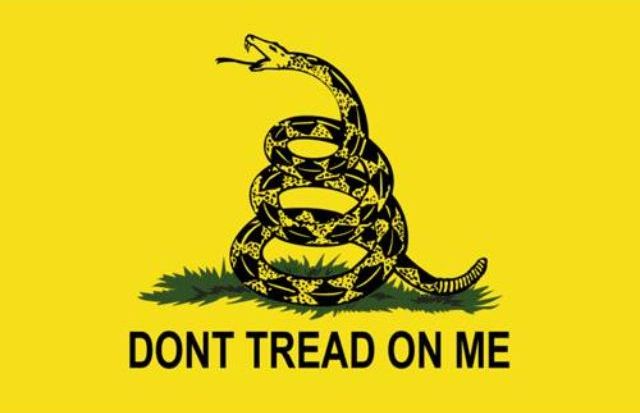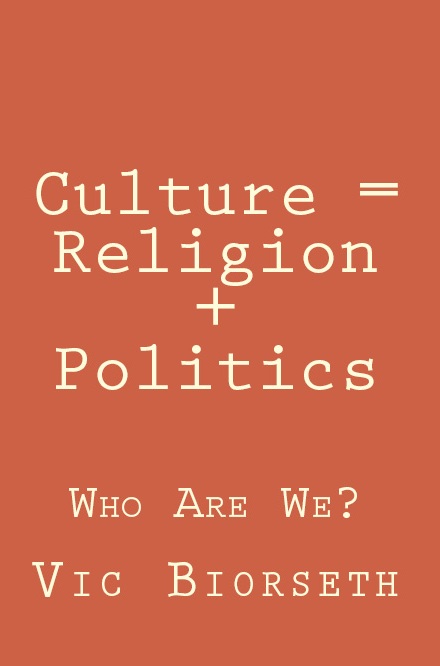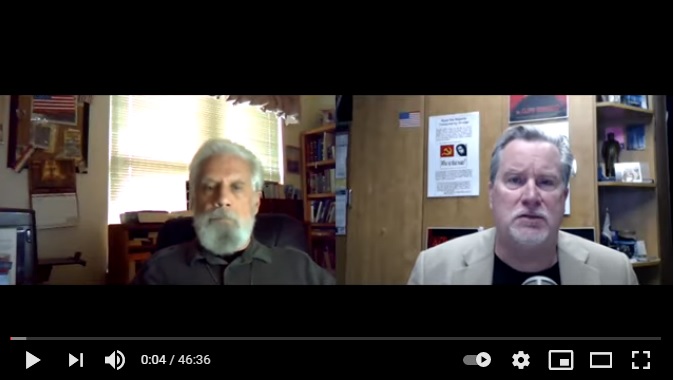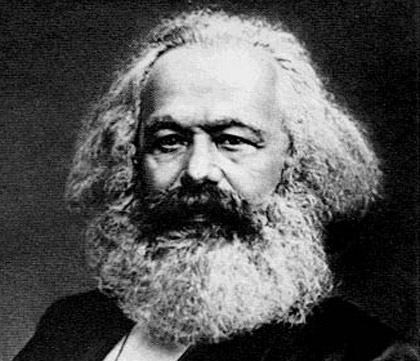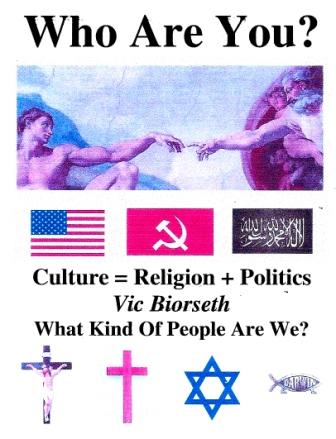Formerly the Thinking Catholic Strategic Center
Confirming Culture=Religion+Politics
Democrat Party goals run right down the Communist Party line.
Vic Biorseth, Tuesday, December 28, 2010
http://www.CatholicAmericanThinker.com
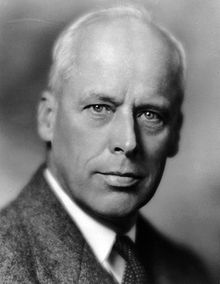
Norman Matoon Thomas
Nov 20, 1884 - Dec 19, 1968
Six time Presidential Candidate for the Socialist Party of America. From a 1944 speech:
"The American people will never knowingly adopt Socialism. But, under the name of 'Liberalism', they will adopt every fragment of the Socialist program until one day America will be a Socialist nation, without knowing how it happened."
He went on to say: "I no longer need to run as a Presidential Candidate for the Socialist Party. The Democrat Party has adopted our platform."
Isn't that nice?
Our government is supposed to be very simple and straight forward. A House of Representatives; a Senate insulated from the voters representing State governments; an independent Judiciary and an elected Executive, all limited in scope and power by a fixed Constitution. The purposes of government are supposed to be very simple, and very limited. National defense, border security, a postal service, international relations, and that’s about it. The whole design of the American government is intended to protect natural rights of citizens to life, liberty and the pursuit of happiness – which is to say, to allow, protect and encourage a free and open market: Capitalism, in other words.
Anything outside of our Declaration and our Constitution is outside the legitimate and legal interest and control of our government. It is not what they are supposed to be doing, not what they are supposed to be taxing for, not what they are supposed to be spending for. We talked about massive intrusion of Marxist “principles” into American government largely though the efforts of the Democrat Party in the Blessed Polarization page, and I’m not going to repeat all of that again here. You can find our Declaration of Independence and our Constitution on this site. Now, here you can find the opposition to all of that, which today forms the devious and deceptive direction of the current American Democrat Party.
So here it is, in all it’s glory.
Manifesto
of the Communist Party
Karl Marx and Frederick Engels; 1848
A spectre is haunting Europe -- the spectre of communism. All the powers of old Europe have entered into a holy alliance to exorcise this spectre: Pope and Tsar, Metternich and Guizot, French Radicals and German police-spies.
Where is the party in opposition that has not been decried as communistic by its opponents in power? Where is the opposition that has not hurled back the branding reproach of communism, against the more advanced opposition parties, as well as against its reactionary adversaries?
Two things result from this fact:
I. Communism is already acknowledged by all European powers to be itself a power.
II. It is high time that Communists should openly, in the face of the whole world, publish their views, their aims, their tendencies, and meet this nursery tale of the spectre of communism with a manifesto of the party itself.
To this end, Communists of various nationalities have assembled in London and sketched the following manifesto, to be published in the English, French, German, Italian, Flemish and Danish languages.
I -- BOURGEOIS AND PROLETARIANS
[1]
The history of all hitherto existing society
[2] is the history of class struggles.
Freeman and slave, patrician and plebian, lord and serf, guild-master [3] and journeyman, in a word, oppressor and oppressed, stood in constant opposition to one another, carried on an uninterrupted, now hidden, now open fight, a fight that each time ended, either in a revolutionary reconstitution of society at large, or in the common ruin of the contending classes.
In the earlier epochs of history, we find almost everywhere a complicated arrangement of society into various orders, a manifold gradation of social rank. In ancient Rome we have patricians, knights, plebians, slaves; in the Middle Ages, feudal lords, vassals, guild-masters, journeymen, apprentices, serfs; in almost all of these classes, again, subordinate gradations.
The modern bourgeois society that has sprouted from the ruins of feudal society has not done away with class antagonisms. It has but established new classes, new conditions of oppression, new forms of struggle in place of the old ones.
Our epoch, the epoch of the bourgeoisie, possesses, however, this distinct feature: it has simplified class antagonisms. Society as a whole is more and more splitting up into two great hostile camps, into two great classes directly facing each other -- bourgeoisie and proletariat.
From the serfs of the Middle Ages sprang the chartered burghers of the earliest towns. From these burgesses the first elements of the bourgeoisie were developed.
The discovery of America, the rounding of the Cape, opened up fresh ground for the rising bourgeoisie. The East-Indian and Chinese markets, the colonisation of America, trade with the colonies, the increase in the means of exchange and in commodities generally, gave to commerce, to navigation, to industry, an impulse never before known, and thereby, to the revolutionary element in the tottering feudal society, a rapid development.
The feudal system of industry, in which industrial production was monopolized by closed guilds, now no longer suffices for the growing wants of the new markets. The manufacturing system took its place. The guild-masters were pushed aside by the manufacturing middle class; division of labor between the different corporate guilds vanished in the face of division of labor in each single workshop.
Meantime, the markets kept ever growing, the demand ever rising. Even manufacturers no longer sufficed. Thereupon, steam and machinery revolutionized industrial production. The place of manufacture was taken by the giant, MODERN INDUSTRY; the place of the industrial middle class by industrial millionaires, the leaders of the whole industrial armies, the modern bourgeois.
Modern industry has established the world market, for which the discovery of America paved the way. This market has given an immense development to commerce, to navigation, to communication by land. This development has, in turn, reacted on the extension of industry; and in proportion as industry, commerce, navigation, railways extended, in the same proportion the bourgeoisie developed, increased its capital, and pushed into the background every class handed down from the Middle Ages.
We see, therefore, how the modern bourgeoisie is itself the product of a long course of development, of a series of revolutions in the modes of production and of exchange.
Each step in the development of the bourgeoisie was accompanied by a corresponding political advance in that class. An oppressed class under the sway of the feudal nobility, an armed and self-governing association of medieval commune [4]: here independent urban republic (as in Italy and Germany); there taxable "third estate" of the monarchy (as in France); afterward, in the period of manufacturing proper, serving either the semi-feudal or the absolute monarchy as a counterpoise against the nobility, and, in fact, cornerstone of the great monarchies in general -- the bourgeoisie has at last, since the establishment of Modern Industry and of the world market, conquered for itself, in the modern representative state, exclusive political sway. The executive of the modern state is but a committee for managing the common affairs of the whole bourgeoisie.
The bourgeoisie, historically, has played a most revolutionary part.
The bourgeoisie, wherever it has got the upper hand, has put an end to all feudal, patriarchal, idyllic relations. It has pitilessly torn asunder the motley feudal ties that bound man to his "natural superiors", and has left no other nexus between people than naked self-interest, than callous "cash payment". It has drowned out the most heavenly ecstacies of religious fervor, of chivalrous enthusiasm, of philistine sentimentalism, in the icy water of egotistical calculation. It has resolved personal worth into exchange value, and in place of the numberless indefeasible chartered freedoms, has set up that single, unconscionable freedom -- Free Trade. In one word, for exploitation, veiled by religious and political illusions, it has substituted naked, shameless, direct, brutal exploitation.
The bourgeoisie has stripped of its halo every occupation hitherto honored and looked up to with reverent awe. It has converted the physician, the lawyer, the priest, the poet, the man of science, into its paid wage laborers.
The bourgeoisie has torn away from the family its sentimental veil, and has reduced the family relation into a mere money relation.
The bourgeoisie has disclosed how it came to pass that the brutal display of vigor in the Middle Ages, which reactionaries so much admire, found its fitting complement in the most slothful indolence. It has been the first to show what man's activity can bring about. It has accomplished wonders far surpassing Egyptian pyramids, Roman aqueducts, and Gothic cathedrals; it has conducted expeditions that put in the shade all former exoduses of nations and crusades.
The bourgeoisie cannot exist without constantly revolutionizing the instruments of production, and thereby the relations of production, and with them the whole relations of society. Conservation of the old modes of production in unaltered form, was, on the contrary, the first condition of existence for all earlier industrial classes. Constant revolutionizing of production, uninterrupted disturbance of all social conditions, everlasting uncertainty and agitation distinguish the bourgeois epoch from all earlier ones. All fixed, fast frozen relations, with their train of ancient and venerable prejudices and opinions, are swept away, all new-formed ones become antiquated before they can ossify. All that is solid melts into air, all that is holy is profaned, and man is at last compelled to face with sober senses his real condition of life and his relations with his kind.
The need of a constantly expanding market for its products chases the bourgeoisie over the entire surface of the globe. It must nestle everywhere, settle everywhere, establish connections everywhere.
The bourgeoisie has, through its exploitation of the world market, given a cosmopolitan character to production and consumption in every country. To the great chagrin of reactionaries, it has drawn from under the feet of industry the national ground on which it stood. All old-established national industries have been destroyed or are daily being destroyed. They are dislodged by new industries, whose introduction becomes a life and death question for all civilized nations, by industries that no longer work up indigenous raw material, but raw material drawn from the remotest zones; industries whose products are consumed, not only at home, but in every quarter of the globe. In place of the old wants, satisfied by the production of the country, we find new wants, requiring for their satisfaction the products of distant lands and climes. In place of the old local and national seclusion and self-sufficiency, we have intercourse in every direction, universal inter-dependence of nations. And as in material, so also in intellectual production. The intellectual creations of individual nations become common property. National one-sidedness and narrow-mindedness become more and more impossible, and from the numerous national and local literatures, there arises a world literature.
The bourgeoisie, by the rapid improvement of all instruments of production, by the immensely facilitated means of communication, draws all, even the most barbarian, nations into civilization. The cheap prices of commodities are the heavy artillery with which it forces the barbarians' intensely obstinate hatred of foreigners to capitulate. It compels all nations, on pain of extinction, to adopt the bourgeois mode of production; it compels them to introduce what it calls civilization into their midst, i.e., to become bourgeois themselves. In one word, it creates a world after its own image.
The bourgeoisie has subjected the country to the rule of the towns. It has created enormous cities, has greatly increased the urban population as compared with the rural, and has thus rescued a considerable part of the population from the idiocy of rural life. Just as it has made the country dependent on the towns, so it has made barbarian and semi-barbarian countries dependent on the civilized ones, nations of peasants on nations of bourgeois, the East on the West.
The bourgeoisie keeps more and more doing away with the scattered state of the population, of the means of production, and of property. It has agglomerated population, centralized the means of production, and has concentrated property in a few hands. The necessary consequence of this was political centralization. Independent, or but loosely connected provinces, with separate interests, laws, governments, and systems of taxation, became lumped together into one nation, with one government, one code of laws, one national class interest, one frontier, and one customs tariff.
The bourgeoisie, during its rule of scarce one hundred years, has created more massive and more colossal productive forces than have all preceding generations together. Subjection of nature's forces to man, machinery, application of chemistry to industry and agriculture, steam navigation, railways, electric telegraphs, clearing of whole continents for cultivation, canalization or rivers, whole populations conjured out of the ground -- what earlier century had even a presentiment that such productive forces slumbered in the lap of social labor?
We see then: the means of production and of exchange, on whose foundation the bourgeoisie built itself up, were generated in feudal society. At a certain stage in the development of these means of production and of exchange, the conditions under which feudal society produced and exchanged, the feudal organization of agriculture and manufacturing industry, in one word, the feudal relations of property became no longer compatible with the already developed productive forces; they became so many fetters. They had to be burst asunder; they were burst asunder.
Into their place stepped free competition, accompanied by a social and political constitution adapted in it, and the economic and political sway of the bourgeois class.
A similar movement is going on before our own eyes. Modern bourgeois society, with its relations of production, of exchange and of property, a society that has conjured up such gigantic means of production and of exchange, is like the sorcerer who is no longer able to control the powers of the nether world whom he has called up by his spells. For many a decade past, the history of industry and commerce is but the history of the revolt of modern productive forces against modern conditions of production, against the property relations that are the conditions for the existence of the bourgeois and of its rule. It is enough to mention the commercial crises that, by their periodical return, put the existence of the entire bourgeois society on its trial, each time more threateningly. In these crises, a great part not only of the existing products, but also of the previously created productive forces, are periodically destroyed. In these crises, there breaks out an epidemic that, in all earlier epochs, would have seemed an absurdity -- the epidemic of over-production. Society suddenly finds itself put back into a state of momentary barbarism; it appears as if a famine, a universal war of devastation, had cut off the supply of every means of subsistence; industry and commerce seem to be destroyed. And why? Because there is too much civilization, too much means of subsistence, too much industry, too much commerce. The productive forces at the disposal of society no longer tend to further the development of the conditions of bourgeois property; on the contrary, they have become too powerful for these conditions, by which they are fettered, and so soon as they overcome these fetters, they bring disorder into the whole of bourgeois society, endanger the existence of bourgeois property. The conditions of bourgeois society are too narrow to comprise the wealth created by them. And how does the bourgeoisie get over these crises? On the one hand, by enforced destruction of a mass of productive forces; on the other, by the conquest of new markets, and by the more thorough exploitation of the old ones. That is to say, by paving the way for more extensive and more destructive crises, and by diminishing the means whereby crises are prevented.
The weapons with which the bourgeoisie felled feudalism to the ground are now turned against the bourgeoisie itself.
But not only has the bourgeoisie forged the weapons that bring death to itself; it has also called into existence the men who are to wield those weapons -- the modern working class -- the proletarians.
In proportion as the bourgeoisie, i.e., capital, is developed, in the same proportion is the proletariat, the modern working class, developed -- a class of laborers, who live only so long as they find work, and who find work only so long as their labor increases capital. These laborers, who must sell themselves piecemeal, are a commodity, like every other article of commerce, and are consequently exposed to all the vicissitudes of competition, to all the fluctuations of the market.
Owing to the extensive use of machinery, and to the division of labor, the work of the proletarians has lost all individual character, and, consequently, all charm for the workman. He becomes an appendage of the machine, and it is only the most simple, most monotonous, and most easily acquired knack, that is required of him. Hence, the cost of production of a workman is restricted, almost entirely, to the means of subsistence that he requires for maintenance, and for the propagation of his race. But the price of a commodity, and therefore also of labor, is equal to its cost of production. In proportion, therefore, as the repulsiveness of the work increases, the wage decreases. What is more, in proportion as the use of machinery and division of labor increases, in the same proportion the burden of toil also increases, whether by prolongation of the working hours, by the increase of the work exacted in a given time, or by increased speed of machinery, etc.
Modern Industry has converted the little workshop of the patriarchal master into the great factory of the industrial capitalist. Masses of laborers, crowded into the factory, are organized like soldiers. As privates of the industrial army, they are placed under the command of a perfect hierarchy of officers and sergeants. Not only are they slaves of the bourgeois class, and of the bourgeois state; they are daily and hourly enslaved by the machine, by the overlooker, and, above all, in the individual bourgeois manufacturer himself. The more openly this despotism proclaims gain to be its end and aim, the more petty, the more hateful and the more embittering it is.
The less the skill and exertion of strength implied in manual labor, in other words, the more modern industry becomes developed, the more is the labor of men superseded by that of women. Differences of age and sex have no longer any distinctive social validity for the working class. All are instruments of labor, more or less expensive to use, according to their age and sex.
No sooner is the exploitation of the laborer by the manufacturer, so far at an end, that he receives his wages in cash, than he is set upon by the other portion of the bourgeoisie, the landlord, the shopkeeper, the pawnbroker, etc.
The lower strata of the middle class -- the small tradespeople, shopkeepers, and retired tradesmen generally, the handicraftsmen and peasants -- all these sink gradually into the proletariat, partly because their diminutive capital does not suffice for the scale on which Modern Industry is carried on, and is swamped in the competition with the large capitalists, partly because their specialized skill is rendered worthless by new methods of production. Thus, the proletariat is recruited from all classes of the population.
The proletariat goes through various stages of development. With its birth begins its struggle with the bourgeoisie. At first, the contest is carried on by individual laborers, then by the work of people of a factory, then by the operative of one trade, in one locality, against the individual bourgeois who directly exploits them. They direct their attacks not against the bourgeois condition of production, but against the instruments of production themselves; they destroy imported wares that compete with their labor, they smash to pieces machinery, they set factories ablaze, they seek to restore by force the vanished status of the workman of the Middle Ages.
At this stage, the laborers still form an incoherent mass scattered over the whole country, and broken up by their mutual competition. If anywhere they unite to form more compact bodies, this is not yet the consequence of their own active union, but of the union of the bourgeoisie, which class, in order to attain its own political ends, is compelled to set the whole proletariat in motion, and is moreover yet, for a time, able to do so. At this stage, therefore, the proletarians do not fight their enemies, but the enemies of their enemies, the remnants of absolute monarchy, the landowners, the non-industrial bourgeois, the petty bourgeois. Thus, the whole historical movement is concentrated in the hands of the bourgeoisie; every victory so obtained is a victory for the bourgeoisie.
But with the development of industry, the proletariat not only increases in number; it becomes concentrated in greater masses, its strength grows, and it feels that strength more. The various interests and conditions of life within the ranks of the proletariat are more and more equalized, in proportion as machinery obliterates all distinctions of labor, and nearly everywhere reduces wages to the same low level. The growing competition among the bourgeois, and the resulting commercial crises, make the wages of the workers ever more fluctuating. The increasing improvement of machinery, ever more rapidly developing, makes their livelihood more and more precarious; the collisions between individual workmen and individual bourgeois take more and more the character of collisions between two classes. Thereupon, the workers begin to form combinations (trade unions) against the bourgeois; they club together in order to keep up the rate of wages; they found permanent associations in order to make provision beforehand for these occasional revolts. Here and there, the contest breaks out into riots.
Now and then the workers are victorious, but only for a time. The real fruit of their battles lie not in the immediate result, but in the ever expanding union of the workers. This union is helped on by the improved means of communication that are created by Modern Industry, and that place the workers of different localities in contact with one another. It was just this contact that was needed to centralize the numerous local struggles, all of the same character, into one national struggle between classes. But every class struggle is a political struggle. And that union, to attain which the burghers of the Middle Ages, with their miserable highways, required centuries, the modern proletarian, thanks to railways, achieve in a few years.
This organization of the proletarians into a class, and, consequently, into a political party, is continually being upset again by the competition between the workers themselves. But it ever rises up again, stronger, firmer, mightier. It compels legislative recognition of particular interests of the workers, by taking advantage of the divisions among the bourgeoisie itself. Thus, the Ten-Hours Bill in England was carried.
Altogether, collisions between the classes of the old society further in many ways the course of development of the proletariat. The bourgeoisie finds itself involved in a constant battle. At first with the aristocracy; later on, with those portions of the bourgeoisie itself, whose interests have become antagonistic to the progress of industry; at all time with the bourgeoisie of foreign countries. In all these battles, it sees itself compelled to appeal to the proletariat, to ask for help, and thus to drag it into the political arena. The bourgeoisie itself, therefore, supplies the proletariat with its own elements of political and general education, in other words, it furnishes the proletariat with weapons for fighting the bourgeoisie.
Further, as we have already seen, entire sections of the ruling class are, by the advance of industry, precipitated into the proletariat, or are at least threatened in their conditions of existence. These also supply the proletariat with fresh elements of enlightenment and progress.
Finally, in times when the class struggle nears the decisive hour, the progress of dissolution going on within the ruling class, in fact within the whole range of old society, assumes such a violent, glaring character, that a small section of the ruling class cuts itself adrift, and joins the revolutionary class, the class that holds the future in its hands. Just as, therefore, at an earlier period, a section of the nobility went over to the bourgeoisie, so now a portion of the bourgeoisie goes over to the proletariat, and in particular, a portion of the bourgeois ideologists, who have raised themselves to the level of comprehending theoretically the historical movement as a whole.
Of all the classes that stand face to face with the bourgeoisie today, the proletariat alone is a genuinely revolutionary class. The other classes decay and finally disappear in the face of Modern Industry; the proletariat is its special and essential product.
The lower middle class, the small manufacturer, the shopkeeper, the artisan, the peasant, all these fight against the bourgeoisie, to save from extinction their existence as fractions of the middle class. They are therefore not revolutionary, but conservative. Nay, more, they are reactionary, for they try to roll back the wheel of history. If, by chance, they are revolutionary, they are only so in view of their impending transfer into the proletariat; they thus defend not their present, but their future interests; they desert their own standpoint to place themselves at that of the proletariat.
The "dangerous class", the social scum, that passively rotting mass thrown off by the lowest layers of the old society, may, here and there, be swept into the movement by a proletarian revolution; its conditions of life, however, prepare it far more for the part of a bribed tool of reactionary intrigue.
In the condition of the proletariat, those of old society at large are already virtually swamped. The proletarian is without property; his relation to his wife and children has no longer anything in common with the bourgeois family relations; modern industry labor, modern subjection to capital, the same in England as in France, in America as in Germany, has stripped him of every trace of national character. Law, morality, religion, are to him so many bourgeois prejudices, behind which lurk in ambush just as many bourgeois interests.
All the preceding classes that got the upper hand sought to fortify their already acquired status by subjecting society at large to their conditions of appropriation. The proletarians cannot become masters of the productive forces of society, except by abolishing their own previous mode of appropriation, and thereby also every other previous mode of appropriation. They have nothing of their own to secure and to fortify; their mission is to destroy all previous securities for, and insurances of, individual property.
All previous historical movements were movements of minorities, or in the interest of minorities. The proletarian movement is the self-conscious, independent movement of the immense majority, in the interest of the immense majority. The proletariat, the lowest stratum of our present society, cannot stir, cannot raise itself up, without the whole superincumbent strata of official society being sprung into the air.
Though not in substance, yet in form, the struggle of the proletariat with the bourgeoisie is at first a national struggle. The proletariat of each country must, of course, first of all settle matters with its own bourgeoisie.
In depicting the most general phases of the development of the proletariat, we traced the more or less veiled civil war, raging within existing society, up to the point where that war breaks out into open revolution, and where the violent overthrow of the bourgeoisie lays the foundation for the sway of the proletariat.
Hitherto, every form of society has been based, as we have already seen, on the antagonism of oppressing and oppressed classes. But in order to oppress a class, certain conditions must be assured to it under which it can, at least, continue its slavish existence. The serf, in the period of serfdom, raised himself to membership in the commune, just as the petty bourgeois, under the yoke of the feudal absolutism, managed to develop into a bourgeois. The modern laborer, on the contrary, instead of rising with the process of industry, sinks deeper and deeper below the conditions of existence of his own class. He becomes a pauper, and pauperism develops more rapidly than population and wealth. And here it becomes evident that the bourgeoisie is unfit any longer to be the ruling class in society, and to impose its conditions of existence upon society as an overriding law. It is unfit to rule because it is incompetent to assure an existence to its slave within his slavery, because it cannot help letting him sink into such a state, that it has to feed him, instead of being fed by him. Society can no longer live under this bourgeoisie, in other words, its existence is no longer compatible with society.
The essential conditions for the existence and for the sway of the bourgeois class is the formation and augmentation of capital; the condition for capital is wage labor. Wage labor rests exclusively on competition between the laborers. The advance of industry, whose involuntary promoter is the bourgeoisie, replaces the isolation of the laborers, due to competition, by the revolutionary combination, due to association. The development of Modern Industry, therefore, cuts from under its feet the very foundation on which the bourgeoisie produces and appropriates products. What the bourgeoisie therefore produces, above all, are its own grave-diggers. Its fall and the victory of the proletariat are equally inevitable.
FOOTNOTES
1] By bourgeoisie is meant the class of modern capitalists, owners of the means of social production and employers of wage labor.
By proletariat, the class of modern wage laborers who, having no means of production of their own, are reduced to selling their labor power in order to live. [Note by Engels - 1888 English edition]
[2] That is, all _written_ history. In 1847, the pre-history of society, the social organization existing previous to recorded history, all but unknown. Since then, August von Haxthausen (1792-1866) discovered common ownership of land in Russia, Georg Ludwig von Maurer proved it to be the social foundation from which all Teutonic races started in history, and, by and by, village communities were found to be, or to have been, the primitive form of society everywhere from India to Ireland. The inner organization of this primitive communistic society was laid bare, in its typical form, by Lewis Henry Morgan's (1818-1861) crowning discovery of the true nature of the gens and its relation to the tribe. With the dissolution of the primeaval communities, society begins to be differentiated into separate and finally antagonistic classes. I have attempted to retrace this dissolution in _Der Ursprung der
Familie, des Privateigenthumus und des Staats_, second edition, Stuttgart, 1886. [Engels, 1888 English edition]
[3] Guild-master, that is, a full member of a guild, a master within, not a head of a guild. [Engels: 1888 English edition]
[4] This was the name given their urban communities by the townsmen of Italy and France, after they had purchased or conquered their initial rights of self-government from their feudal lords. [Engels: 1890 German edition]
"Commune" was the name taken in France by the nascent towns even before they had conquered from their feudal lords and masters local self-government and political rights as the "Third Estate". Generally speaking, for the economical development of the bourgeoisie, England is here taken as the typical country, for its political development, France. [Engels: 1888 English edition]
II -- PROLETARIANS AND COMMUNISTS
In what relation do the Communists stand to the proletarians as a whole? The Communists do not form a separate party opposed to the other working-class parties.
They have no interests separate and apart from those of the proletariat as a whole.
They do not set up any sectarian principles of their own, by which to shape and mold the proletarian movement.
The Communists are distinguished from the other working-class parties by this only:
(1) In the national struggles of the proletarians of the different countries, they point out and bring to the front the common interests of the entire proletariat, independently of all nationality.
(2) In the various stages of development which the struggle of the working class against the bourgeoisie has to pass through, they always and everywhere represent the interests of the movement as a whole.
The Communists, therefore, are on the one hand practically, the most advanced and resolute section of the working-class parties of every country, that section which pushes forward all others; on the other hand, theoretically, they have over the great mass of the proletariat the advantage of clearly understanding the lines of march, the conditions, and the ultimate general results of the proletarian movement.
The immediate aim of the Communists is the same as that of all other proletarian parties: Formation of the proletariat into a class, overthrow of the bourgeois supremacy, conquest of political power by the proletariat.
The theoretical conclusions of the Communists are in no way based on ideas or principles that have been invented, or discovered, by this or that would-be universal reformer.
They merely express, in general terms, actual relations springing from an existing class struggle, from a historical movement going on under our very eyes. The abolition of existing property relations is not at all a distinctive feature of communism.
All property relations in the past have continually been subject to historical change consequent upon the change in historical conditions.
The French Revolution, for example, abolished feudal property in favor of bourgeois property.
The distinguishing feature of communism is not the abolition of property generally, but the abolition of bourgeois property. But modern bourgeois private property is the final and most complete expression of the system of producing and appropriating products that is based on class antagonisms, on the exploitation of the many by the few.
In this sense, the theory of the Communists may be summed up in the single sentence: Abolition of private property.
We Communists have been reproached with the desire of abolishing the right of personally acquiring property as the fruit of a man's own labor, which property is alleged to be the groundwork of all personal freedom, activity and independence.
Hard-won, self-acquired, self-earned property! Do you mean the property of petty artisan and of the small peasant, a form of property that preceded the bourgeois form? There is no need to abolish that; the development of industry has to a great extent already destroyed it, and is still destroying it daily.
Or do you mean the modern bourgeois private property?
But does wage labor create any property for the laborer? Not a bit. It creates capital, i.e., that kind of property which exploits wage labor, and which cannot increase except upon conditions of begetting a new supply of wage labor for fresh exploitation. Property, in its present form, is based on the antagonism of capital and wage labor. Let us examine both sides of this antagonism.
To be a capitalist, is to have not only a purely personal, but a social STATUS in production. Capital is a collective product, and only by the united action of many members, nay, in the last resort, only by the united action of all members of society, can it be set in motion. Capital is therefore not only personal; it is a social power.
When, therefore, capital is converted into common property, into the property of all members of society, personal property is not thereby transformed into social property. It is only the social character of the property that is changed. It loses its class character.
Let us now take wage labor.
The average price of wage labor is the minimum wage, i.e., that quantum of the means of subsistence which is absolutely requisite to keep the laborer in bare existence as a laborer. What, therefore, the wage laborer appropriates by means of his labor merely suffices to prolong and reproduce a bare existence. We by no means intend to abolish this personal appropriation of the products of labor, an appropriation that is made for the maintenance and reproduction of human life, and that leaves no surplus wherewith to command the labor of others. All that we want to do away with is the miserable character of this appropriation, under which the laborer lives merely to increase capital, and is allowed to live only in so far as the interest of the ruling class requires it.
In bourgeois society, living labor is but a means to increase accumulated labor. In communist society, accumulated labor is but a means to widen, to enrich, to promote the existence of the laborer.
In bourgeois society, therefore, the past dominates the present; in communist society, the present dominates the past. In bourgeois society, capital is independent and has individuality, while the living person is dependent and has no individuality.
And the abolition of this state of things is called by the bourgeois, abolition of individuality and freedom! And rightly so. The abolition of bourgeois individuality, bourgeois independence, and bourgeois freedom is undoubtedly aimed at.
By freedom is meant, under the present bourgeois conditions of production, free trade, free selling and buying.
But if selling and buying disappears, free selling and buying disappears also. This talk about free selling and buying, and all the other "brave words" of our bourgeois about freedom in general, have a meaning, if any, only in contrast with restricted selling and buying, with the fettered traders of the Middle Ages, but have no meaning when opposed to the communist abolition of buying and selling, or the bourgeois conditions of production, and of the bourgeoisie itself.
You are horrified at our intending to do away with private property. But in your existing society, private property is already done away with for nine-tenths of the population; its existence for the few is solely due to its non-existence in the hands of those nine-tenths. You reproach us, therefore, with intending to do away with a form of property, the necessary condition for whose existence is the non-existence of any property for the immense majority of society.
In one word, you reproach us with intending to do away with your property. Precisely so; that is just what we intend.
From the moment when labor can no longer be converted into capital, money, or rent, into a social power capable of being monopolized, i.e., from the moment when individual property can no longer be transformed into bourgeois property, into capital, from that moment, you say, individuality vanishes.
You must, therefore, confess that by "individual" you mean no other person than the bourgeois, than the middle-class owner of property. This person must, indeed, be swept out of the way, and made impossible.
Communism deprives no man of the power to appropriate the products of society; all that it does is to deprive him of the power to subjugate the labor of others by means of such appropriations.
It has been objected that upon the abolition of private property, all work will cease, and universal laziness will overtake us.
According to this, bourgeois society ought long ago to have gone to the dogs through sheer idleness; for those who acquire anything, do not work. The whole of this objection is but another expression of the tautology: There can no longer be any wage labor when there is no longer any capital.
All objections urged against the communistic mode of producing and appropriating material products, have, in the same way, been urged against the communistic mode of producing and appropriating intellectual products. Just as to the bourgeois, the disappearance of class property is the disappearance of production itself, so the disappearance of class culture is to him identical with the disappearance of all culture.
That culture, the loss of which he laments, is, for the enormous majority, a mere training to act as a machine.
But don't wrangle with us so long as you apply, to our intended abolition of bourgeois property, the standard of your bourgeois notions of freedom, culture, law, etc. Your very ideas are but the outgrowth of the conditions of your bourgeois production and bourgeois property, just as your jurisprudence is but the will of your class made into a law for all, a will whose essential character and direction are determined by the economical conditions of existence of your class.
The selfish misconception that induces you to transform into eternal laws of nature and of reason the social forms stringing from your present mode of production and form of property -- historical relations that rise and disappear in the progress of production -- this misconception you share with every ruling class that has preceded you. What you see clearly in the case of ancient property, what you admit in the case of feudal property, you are of course forbidden to admit in the case of your own bourgeois form of property.
Abolition of the family! Even the most radical flare up at this infamous proposal of the Communists.
On what foundation is the present family, the bourgeois family, based? On capital, on private gain. In its completely developed form, this family exists only among the bourgeoisie. But this state of things finds its complement in the practical absence of the family among proletarians, and in public prostitution.
The bourgeois family will vanish as a matter of course when its complement vanishes, and both will vanish with the vanishing of capital.
Do you charge us with wanting to stop the exploitation of children by their parents? To this crime we plead guilty.
But, you say, we destroy the most hallowed of relations, when we replace home education by social.
And your education! Is not that also social, and determined by the social conditions under which you educate, by the intervention direct or indirect, of society, by means of schools, etc.? The Communists have not intended the intervention of society in education; they do but seek to alter the character of that intervention, and to rescue education from the influence of the ruling class.
The bourgeois claptrap about the family and education, about the hallowed correlation of parents and child, becomes all the more disgusting, the more, by the action of Modern Industry, all the family ties among the proletarians are torn asunder, and their children transformed into simple articles of commerce and instruments of labor.
But you Communists would introduce community of women, screams the bourgeoisie in chorus.
The bourgeois sees his wife a mere instrument of production. He hears that the instruments of production are to be exploited in common, and, naturally, can come to no other conclusion that the lot of being common to all will likewise fall to the women.
He has not even a suspicion that the real point aimed at is to do away with the status of women as mere instruments of production.
For the rest, nothing is more ridiculous than the virtuous indignation of our bourgeois at the community of women which, they pretend, is to be openly and officially established by the Communists. The Communists have no need to introduce free love; it has existed almost from time immemorial.
Our bourgeois, not content with having wives and daughters of their proletarians at their disposal, not to speak of common prostitutes, take the greatest pleasure in seducing each other's wives. (Ah, those were the days!)
Bourgeois marriage is, in reality, a system of wives in common and thus, at the most, what the Communists might possibly be reproached with is that they desire to introduce, in substitution for a hypocritically concealed, an openly legalized system of free love. For the rest, it is self-evident that the abolition of the present system of production must bring with it the abolition of free love springing from that system, i.e., of prostitution both public and private.
The Communists are further reproached with desiring to abolish countries and nationality.
The workers have no country. We cannot take from them what they have not got. Since the proletariat must first of all acquire political supremacy, must rise to be the leading class of the nation, must constitute itself the nation, it is, so far, itself national, though not in the bourgeois sense of the word.
National differences and antagonism between peoples are daily more and more vanishing, owing to the development of the bourgeoisie, to freedom of commerce, to the world market, to uniformity in the mode of production and in the conditions of life corresponding thereto.
The supremacy of the proletariat will cause them to vanish still faster. United action of the leading civilized countries at least is one of the first conditions for the emancipation of the proletariat.
In proportion as the exploitation of one individual by another will also be put an end to, the exploitation of one nation by another will also be put an end to. In proportion as the antagonism between classes within the nation vanishes, the hostility of one nation to another will come to an end.
The charges against communism made from a religious, a philosophical and, generally, from an ideological standpoint, are not deserving of serious examination.
Does it require deep intuition to comprehend that man's ideas, views, and conception, in one word, man's consciousness, changes with every change in the conditions of his material existence, in his social relations and in his social life?
What else does the history of ideas prove, than that intellectual production changes its character in proportion as material production is changed? The ruling ideas of each age have ever been the ideas of its ruling class.
When people speak of the ideas that revolutionize society, they do but express that fact that within the old society the elements of a new one have been created, and that the dissolution of the old ideas keeps even pace with the dissolution of the old conditions of existence.
When the ancient world was in its last throes, the ancient religions were overcome by Christianity. When Christian ideas succumbed in the eighteenth century to rationalist ideas, feudal society fought its death battle with the then revolutionary bourgeoisie. The ideas of religious liberty and freedom of conscience merely gave expression to the sway of free competition within the domain of knowledge.
"Undoubtedly," it will be said, "religious, moral, philosophical, and juridicial ideas have been modified in the course of historical development. But religion, morality, philosophy, political science, and law, constantly survived this change."
"There are, besides, eternal truths, such as Freedom, Justice, etc., that are common to all states of society. But communism abolishes eternal truths, it abolishes all religion, and all morality, instead of constituting them on a new basis; it therefore acts in contradiction to all past historical experience."
What does this accusation reduce itself to? The history of all past society has consisted in the development of class antagonisms, antagonisms that assumed different forms at different epochs.
But whatever form they may have taken, one fact is common to all past ages, viz., the exploitation of one part of society by the other. No wonder, then, that the social consciousness of past ages, despite all the multiplicity and variety it displays, moves within certain common forms, or general ideas, which cannot completely vanish except with the total disappearance of class antagonisms.
The communist revolution is the most radical rupture with traditional relations; no wonder that its development involved the most radical rupture with traditional ideas.
But let us have done with the bourgeois objections to communism.
We have seen above that the first step in the revolution by the working class is to raise the proletariat to the position of ruling class to win the battle of democracy.
The proletariat will use its political supremacy to wrest, by degree, all capital from the bourgeoisie, to centralize all instruments of production in the hands of the state, i.e., of the proletariat organized as the ruling class; and to increase the total productive forces as rapidly as possible.
Of course, in the beginning, this cannot be effected except by means of despotic inroads on the rights of property, and on the conditions of bourgeois production; by means of measures, therefore, which appear economically insufficient and untenable, but which, in the course of the movement, outstrip themselves, necessitate further inroads upon the old social order, and are unavoidable as a means of entirely revolutionizing the mode of production.
These measures will, of course, be different in different countries.
Nevertheless, in most advanced countries, the following will be pretty generally applicable.
1. Abolition of property in land and application of all rents of land to public purposes.
2. A heavy progressive or graduated income tax.
3. Abolition of all rights of inheritance.
4. Confiscation of the property of all emigrants and rebels.
5. Centralization of credit in the banks of the state, by means of a national bank with state capital and an exclusive monopoly.
6. Centralization of the means of communication and transport in the hands of the state.
7. Extension of factories and instruments of production owned by the state; the bringing into cultivation of waste lands, and the improvement of the soil generally in accordance with a common plan.
8. Equal obligation of all to work. Establishment of industrial armies, especially for agriculture.
9. Combination of agriculture with manufacturing industries; gradual abolition of all the distinction between town and country by a more equable distribution of the populace over the country.
10. Free education for all children in public schools. Abolition of children's factory labor in its present form. Combination of education with industrial production, etc.
When, in the course of development, class distinctions have disappeared, and all production has been concentrated in the hands of a vast association of the whole nation, the public power will lose its political character. Political power, properly so called, is merely the organized power of one class for oppressing another. If the proletariat during its contest with the bourgeoisie is compelled, by the force of circumstances, to organize itself as a class; if, by means of a revolution, it makes itself the ruling class, and, as such, sweeps away by force the old conditions of production, then it will, along with these conditions, have swept away the conditions for the existence of class antagonisms and of classes generally, and will thereby have abolished its own supremacy as a class.
In place of the old bourgeois society, with its classes and class antagonisms, we shall have an association in which the free development of each is the condition for the free development of all.
III -- SOCIALIST AND COMMUNIST LITERATURE
1. REACTIONARY SOCIALISM
a. Feudal Socialism
Owing to their historical position, it became the vocation of the aristocracies of France and England to write pamphlets against modern bourgeois society. In the French Revolution of July 1830, and in the English reform agitation, these aristocracies again succumbed to the hateful upstart. Thenceforth, a serious political struggle was altogether out of the question. A literary battle alone remained possible. But even in the domain of literature, the old cries of the restoration period had become impossible. [1]
In order to arouse sympathy, the aristocracy was obliged to lose sight, apparently, of its own interests, and to formulate its indictment against the bourgeoisie in the interest of the exploited working class alone. Thus, the aristocracy took their revenge by singing lampoons on their new masters and whispering in his ears sinister prophesies of coming catastrophe.
In this way arose feudal socialism: half lamentation, half lampoon; half an echo of the past, half menace of the future; at times, by its bitter, witty and incisive criticism, striking the bourgeoisie to the very heart's core, but always ludicrous in its effect, through total incapacity to comprehend the march of modern history.
The aristocracy, in order to rally the people to them, waved the proletarian alms-bag in front for a banner. But the people, so often as it joined them, saw on their hindquarters the old feudal coats of arms, and deserted with loud and irreverent laughter.
One section of the French Legitimists and "Young England" exhibited this spectacle:
In pointing out that their mode of exploitation was different to that of the bourgeoisie, the feudalists forget that they exploited under circumstances and conditions that were quite different and that are now antiquated. In showing that, under their rule, the modern proletariat never existed, they forget that the modern bourgeoisie is the necessary offspring of their own form of society.
For the rest, so little do they conceal the reactionary character of their criticism that their chief accusation against the bourgeois amounts to this: that under the bourgeois regime a class is being developed which is destined to cut up, root and branch, the old order of society.
What they upbraid the bourgeoisie with is not so much that it creates a proletariat as that it creates a _revolutionary_ proletariat.
In political practice, therefore, they join in all corrective measures against the working class; and in ordinary life, despite their high falutin' phrases, they stoop to pick up the golden apples dropped from the tree of industry, and to barter truth, love, and honor, for traffic in wool, beetroot-sugar, and potato spirits. [2]
As the parson has ever gone hand in hand with the landlord, so has clerical socialism with feudal socialism.
Nothing is easier than to give Christian asceticism a socialist tinge. Has not Christianity declaimed against private property, against marriage, against the state? Has it not preached in the place of these, charity and poverty, celibacy and mortification of the flesh, monastic life and Mother Church? Christian socialism is but the holy water with which the priest consecrates the heart-burnings of the aristocrat.
b. Petty-Bourgeois Socialism
The feudal aristocracy was not the only class that was ruined by the bourgeoisie, not the only class whose conditions of existence pined and perished in the atmosphere of modern bourgeois society. The medieval burgesses and the small peasant proprietors were the precursors of the modern bourgeoisie. In those countries which are but little developed, industrially and commercially, these two classes still vegetate side by side with the rising bourgeoisie.
In countries where modern civilization has become fully developed, a new class of petty bourgeois has been formed, fluctuating between proletariat and bourgeoisie, and ever renewing itself a supplementary part of bourgeois society. The individual members of this class, however, as being constantly hurled down into the proletariat by the action of competition, and, as Modern Industry develops, they even see the moment approaching when they will completely disappear as an independent section of modern society, to be replaced in manufactures, agriculture and commerce, by overlookers, bailiffs and shopmen.
In countries like France, where the peasants constitute far more than half of the population, it was natural that writers who sided with the proletariat against the bourgeoisie should use, in their criticism of the bourgeois regime, the standard of the peasant and petty bourgeois, and from the standpoint of these intermediate classes, should take up the cudgels for the working class. Thus arose petty-bourgeois socialism. Sismondi was the head of this school, not only in France but also in England.
This school of socialism dissected with great acuteness the contradictions in the conditions of modern production. It laid bare the hypocritical apologies of economists. It proved, incontrovertibly, the disastrous effects of machinery and division of labor; the concentration of capital and land in a few hands; overproduction and crises; it pointed out the inevitable ruin of the petty bourgeois and peasant, the misery of the proletariat, the anarchy in production, the crying inequalities in the distribution of wealth, the industrial war of extermination between nations, the dissolution of old moral bonds, of the old family relations, of the old nationalities.
In it positive aims, however, this form of socialism aspires either to restoring the old means of production and of exchange, and with them the old property relations, and the old society, or to cramping the modern means of production and of exchange within the framework of the old property relations that have been, and were bound to be, exploded by those means. In either case, it is both reactionary and Utopian.
Its last words are: corporate guilds for manufacture; patriarchal relations in agriculture.
Ultimately, when stubborn historical facts had dispersed all intoxicating effects of self-deception, this form of socialism ended in a miserable hangover.
c. German or "True" Socialism
The socialist and communist literature of France, a literature that originated under the pressure of a bourgeoisie in power, and that was the expressions of the struggle against this power, was introduced into Germany at a time when the bourgeoisie in that country had just begun its contest with feudal absolutism.
German philosophers, would-be philosophers, and beaux esprits (men of letters), eagerly seized on this literature, only forgetting that when these writings immigrated from France into Germany, French social conditions had not immigrated along with them. In contact with German social conditions, this French literature lost all its immediate practical significance and assumed a purely literary aspect. Thus, to the German philosophers of the eighteenth century, the demands of the first French Revolution were nothing more than the demands of "Practical Reason" in general, and the utterance of the will of the revolutionary French bourgeoisie signified, in their eyes, the laws of pure will, of will as it was bound to be, of true human will generally.
The work of the German literati consisted solely in bringing the new French ideas into harmony with their ancient philosophical conscience, or rather, in annexing the French ideas without deserting their own philosophic point of view.
This annexation took place in the same way in which a foreign language is appropriated, namely, by translation.
It is well known how the monks wrote silly lives of Catholic saints _over_ the manuscripts on which the classical works of ancient heathendom had been written. The German literati reversed this process with the profane French literature. They wrote their philosophical nonsense beneath the French original. For instance, beneath the French criticism of the economic functions of money, they wrote "alienation of humanity", and beneath the French criticism of the bourgeois state they wrote "dethronement of the category of the general", and so forth.
The introduction of these philosophical phrases at the back of the French historical criticisms, they dubbed "Philosophy of Action", "True Socialism", "German Science of Socialism", "Philosophical Foundation of Socialism", and so on.
The French socialist and communist literature was thus completely emasculated. And, since it ceased, in the hands of the German, to express the struggle of one class with the other, he felt conscious of having overcome "French one-sidedness" and of representing, not true requirements, but the requirements of truth; not the interests of the proletariat, but the interests of human nature, of man in general, who belongs to no class, has no reality, who exists only in the misty realm of philosophical fantasy.
This German socialism, which took its schoolboy task so seriously and solemnly, and extolled its poor stock-in-trade in such a mountebank fashion, meanwhile gradually lost its pedantic innocence.
The fight of the Germans, and especially of the Prussian bourgeoisie, against feudal aristocracy and absolute monarchy, in other words, the liberal movement, became more earnest.
By this, the long-wished for opportunity was offered to "True" Socialism of confronting the political movement with the socialistic demands, of hurling the traditional anathemas against liberalism, against representative government, against bourgeois competition, bourgeois freedom of the press, bourgeois legislation, bourgeois liberty and equality, and of preaching to the masses that they had nothing to gain, and everything to lose, by this bourgeois movement. German socialism forgot, in the nick of time, that the French criticism, whose silly echo it was, presupposed the existence of modern bourgeois society, with its corresponding economic conditions of existence, and the political constitution adapted thereto, the very things whose attainment was the object of the pending struggle in Germany.
To the absolute governments, with their following of parsons, professors, country squires, and officials, it served as a welcome scarecrow against the threatening bourgeoisie.
It was a sweet finish, after the bitter pills of flogging and bullets, with which these same governments, just at that time, dosed the German working-class risings.
While this "True" Socialism thus served the government as a weapon for fighting the German bourgeoisie, it, at the same time, directly represented a reactionary interest, the interest of German philistines. In Germany, the petty-bourgeois class, a relic of the sixteenth century, and since then constantly cropping up again under the various forms, is the real social basis of the existing state of things.
To preserve this class is to preserve the existing state of things in Germany. The industrial and political supremacy of the bourgeoisie threatens it with certain destruction -- on the one hand, from the concentration of capital; on the other, from the rise of a revolutionary proletariat. "True" Socialism appeared to kill these two birds with one stone. It spread like an epidemic.
The robe of speculative cobwebs, embroidered with flowers of rhetoric, steeped in the dew of sickly sentiment, this transcendental robe in which the German Socialists wrapped their sorry "eternal truths", all skin and bone, served to wonderfully increase the sale of their goods amongst such a public. And on its part German socialism recognized, more and more, its own calling as the bombastic representative of the petty-bourgeois philistine.
It proclaimed the German nation to be the model nation, and the German petty philistine to be the typical man. To every villainous meanness of this model man, it gave a hidden, higher, socialistic interpretation, the exact contrary of its real character. It went to the extreme length of directly opposing the "brutally destructive" tendency of communism, and of proclaiming its supreme and impartial contempt of all class struggles. With very few exceptions, all the so-called socialist and communist publications that now (1847) circulate in Germany belong to the domain of this foul and enervating literature. [3]
2. CONSERVATIVE OR BOURGEOIS SOCIALISM
A part of the bourgeoisie is desirous of redressing social grievances in order to secure the continued existence of bourgeois society.
To this section belong economists, philanthropists, humanitarians, improvers of the condition of the working class, organizers of charity, members of societies for the prevention of cruelty to animals, temperance fanatics, hole-and-corner reformers of every imaginable kind. This form of socialism has, moreover, been worked out into complete systems.
We may cite Proudhon's Philosophy of Poverty as an example of this form.
The socialistic bourgeois want all the advantages of modern social conditions without the struggles and dangers necessarily resulting therefrom. They desire the existing state of society, minus its revolutionary and disintegrating elements. They wish for a bourgeoisie without a proletariat. The bourgeoisie naturally conceives the world in which it is supreme to be the best; and bourgeois socialism develops this comfortable conception into various more or less complete systems. In requiring the proletariat to carry out such a system, and thereby to march straightaway into the social New Jerusalem, it but requires in reality that the proletariat should remain within the bounds of existing society, but should cast away all its hateful ideas concerning the bourgeoisie.
A second, and more practical, but less systematic, form of this socialism sought to depreciate every revolutionary movement in the eyes of the working class by showing that no mere political reform, but only a change in the material conditions of existence, in economical relations, could be of any advantage to them. By changes in the material conditions of existence, this form of socialism, however, by no means understands abolition of the bourgeois relations of production, an abolition that can be affected only by a revolution, but administrative reforms, based on the continued existence of these relations; reforms, therefore, that in no respect affect the relations between capital and labor, but, at the best, lessen the cost, and simplify the administrative work of bourgeois government.
Bourgeois socialism attains adequate expression when, and only when, it becomes a mere figure of speech.
Free trade: for the benefit of the working class. Protective duties: for the benefit of the working class. Prison reform: for the benefit of the working class. This is the last word and the only seriously meant word of bourgeois socialism.
It is summed up in the phrase: the bourgeois is a bourgeois -- for the benefit of the working class.
3. CRITICAL-UTOPIAN SOCIALISM AND COMMUNISM
We do not here refer to that literature which, in every great modern revolution, has always given voice to the demands of the proletariat, such as the writings of Babeuf [4] and others.
The first direct attempts of the proletariat to attain its own ends, made in times of universal excitement, when feudal society was being overthrown, necessarily failed, owing to the then undeveloped state of the proletariat, as well as to the absence of the economic conditions for its emancipation, conditions that had yet to be produced, and could be produced by the impending bourgeois epoch alone. The revolutionary literature that accompanied these first movements of the proletariat had necessarily a reactionary character. It inculcated universal asceticism and social levelling in its crudest form.
The socialist and communist systems, properly so called, those of Saint-Simon [5], Fourier [6], Owen [7], and others, spring into existence in the early undeveloped period, described above, of the struggle between proletariat and bourgeoisie (see Section 1. Bourgeois and Proletarians).
The founders of these systems see, indeed, the class antagonisms, as well as the action of the decomposing elements in the prevailing form of society. But the proletariat, as yet in its infancy, offers to them the spectacle of a class without any historical initiative or any independent political movement.
Since the development of class antagonism keeps even pace with the development of industry, the economic situation, as they find it, does not as yet offer to them the material conditions for the emancipation of the proletariat. They therefore search after a new social science, after new social laws, that are to create these conditions.
Historical action is to yield to their personal inventive action; historically created conditions of emancipation to fantastic ones; and the gradual, spontaneous class organization of the proletariat to an organization of society especially contrived by these inventors. Future history resolves itself, in their eyes, into the propaganda and the practical carrying out of their social plans.
In the formation of their plans, they are conscious of caring chiefly for the interests of the working class, as being the most suffering class. Only from the point of view of being the most suffering class does the proletariat exist for them.
The undeveloped state of the class struggle, as well as their own surroundings, causes Socialists of this kind to consider themselves far superior to all class antagonisms. They want to improve the condition of every member of society, even that of the most favored. Hence, they habitually appeal to society at large, without the distinction of class; nay, by preference, to the ruling class. For how can people when once they understand their system, fail to see in it the best possible plan of the best possible state of society?
Hence, they reject all political, and especially all revolutionary action; they wish to attain their ends by peaceful means, necessarily doomed to failure, and by the force of example, to pave the way for the new social gospel.
Such fantastic pictures of future society, painted at a time when the proletariat is still in a very undeveloped state and has but a fantastic conception of its own position, correspond with the first instinctive yearnings of that class for a general reconstruction of society.
But these socialist and communist publications contain also a critical element. They attack every principle of existing society. Hence, they are full of the most valuable materials for the enlightenment of the working class. The practical measures proposed in them -- such as the abolition of the distinction between town and country, of the family, of the carrying on of industries for the account of private individuals, and of the wage system, the proclamation of social harmony, the conversion of the function of the state into a more superintendence of production -- all these proposals point solely to the disappearance of class antagonisms which were, at that time, only just cropping up, and which, in these publications, are recognized in their earliest indistinct and undefined forms only. These proposals, therefore, are of a purely utopian character.
The significance of critical-utopian socialism and communism bears an inverse relation to historical development. In proportion as the modern class struggle develops and takes definite shape, this fantastic standing apart from the contest, these fantastic attacks on it, lose all practical value and all theoretical justifications. Therefore, although the originators of these systems were, in many respects, revolutionary, their disciples have, in every case, formed mere reactionary sects. They hold fast by the original views of their masters, in opposition to the progressive historical development of the proletariat. They, therefore, endeavor, and that consistently, to deaden the class struggle and to reconcile the class antagonisms. They still dream of experimental realization of their social utopias, of founding isolated phalansteres, of establishing "Home Colonies", or setting up a "Little Icaria" [8] -- pocket editions of the New Jerusalem -- and to realize all these castles in the air, they are compelled to appeal to the feelings and purses of the bourgeois. By degrees, they sink into the category of the reactionary conservative socialists depicted above, differing from these only by more systematic pedantry, and by their fanatical and superstitious belief in the miraculous effects of their social science.
They, therefore, violently oppose all political action on the part of the working class; such action, according to them, can only result from blind unbelief in the new gospel.
The Owenites in England, and the Fourierists in France, respectively, oppose the Chartists and the Reformistes.
FOOTNOTES
[1] NOTE by Engels to 1888 English edition: Not the English Restoration (1660-1689), but the French Restoration (1814-1830).
[2] NOTE by Engels to 1888 English edition: This applies chiefly to Germany, where the landed aristocracy and squirearchy have large portions of their estates cultivated for their own account by stewards, and are, moreover, extensive beetroot-sugar manufacturers and distillers of potato spirits. The wealthier british aristocracy are, as yet, rather above that; but they, too, know how to make up for declining rents by lending their names to floaters or more or less shady joint-stock companies.
[3] NOTE by Engels to 1888 German edition: The revolutionary storm of 1848 swept away this whole shabby tendency and cured its protagonists of the desire to dabble in socialism. The chief representative and classical type of this tendency is Mr Karl Gruen.
[4] Francois Noel Babeuf (1760-1797): French political agitator; plotted unsuccessfully to destroy the Directory in revolutionary France and established a communistic system.
[5] Comte de Saint-Simon, Claude Henri de Rouvroy (1760-1825): French social philosopher; generally regarded as founder of French socialism. He thought society should be reorganized along industrial lines and that scientists should be the new spiritual leaders. His most important work is _Nouveau_Christianisme_ (1825).
[6] Charles Fourier (1772-1837): French social reformer; propounded a system of self-sufficient cooperatives known as Fourierism, especially in his work _Le_Nouveau_Monde_industriel_ (1829-30)
[7] Richard Owen (1771-1858): Welsh industrialist and social reformer. He formed a model industrial community at New Lanark, Scotland, and pioneered cooperative societies. His books include _New_View_Of_Society_ (1813).
[8] NOTE by Engels to 1888 English edition: "Home Colonies" were what Owen called his communist model societies. _Phalansteres_ were socialist colonies on the plan of Charles Fourier; Icaria was the name given by Caber to his utopia and, later on, to his American communist colony.
IV -- POSITION OF THE COMMUNISTS IN RELATION TO
THE VARIOUS EXISTING OPPOSITION PARTIES
Section II has made clear the relations of the Communists to the existing working-class parties, such as the Chartists in England and the Agrarian Reformers in America.
The Communists fight for the attainment of the immediate aims, for the enforcement of the momentary interests of the working class; but in the movement of the present, they also represent and take care of the future of that movement. In France, the Communists ally with the Social Democrats* against the conservative and radical bourgeoisie, reserving, however, the right to take up a critical position in regard to phases and illusions traditionally handed down from the Great Revolution.
In Switzerland, they support the Radicals, without losing sight of the fact that this party consists of antagonistic elements, partly of Democratic Socialists, in the French sense, partly of radical bourgeois.
In Poland, they support the party that insists on an agrarian revolution as the prime condition for national emancipation, that party which fomented the insurrection of Krakow in 1846.
In Germany, they fight with the bourgeoisie whenever it acts in a revolutionary way, against the absolute monarchy, the feudal squirearchy, and the petty-bourgeoisie.
But they never cease, for a single instant, to instill into the working class the clearest possible recognition of the hostile antagonism between bourgeoisie and proletariat, in order that the German workers may straightway use, as so many weapons against the bourgeoisie, the social and political conditions that the bourgeoisie must necessarily introduce along with its supremacy, and in order that, after the fall of the reactionary classes in Germany, the fight against the bourgeoisie itself may immediately begin.
The Communists turn their attention chiefly to Germany, because that country is on the eve of a bourgeois revolution that is bound to be carried out under more advanced conditions of European civilization and with a much more developed proletariat than that of England was in the seventeenth, and France in the eighteenth century, and because the bourgeois revolution in Germany will be but the prelude to an immediately following proletarian revolution.
In short, the Communists everywhere support every revolutionary movement against the existing social and political order of things.
In all these movements, they bring to the front, as the leading question in each, the property question, no matter what its degree of development at the time.
Finally, they labor everywhere for the union and agreement of the democratic parties of all countries.
The Communists disdain to conceal their views and aims. They openly declare that their ends can be attained only by the forcible overthrow of all existing social conditions. Let the ruling classes tremble at a communist revolution. The proletarians have nothing to lose but their chains. They have a world to win.
Proletarians of all countries, unite!
Sarcastic Acronym Hover-Link Footnotes: For the convenience of those readers using devices that lack a mouse, these footnotes are provided for all webpages, in case any webpage contains any hover-links. (If you don't have a mouse, you can't "hover" it over a link without clicking just to see the simple acronym interpretation. Click any footnote link to see the acronym and a detailed explanation; "Hover" the mouse over it just to see the simple interpretation.)
SLIMC1 Secularist Liberal Intellectual Media ComplexGESGOEAEOT2 Gradually, Ever So Gradually, Over Eons And Eons Of Time
PEWAG3 Punctuated Equilibrium's Wild-Assed Guess
TTRSTF4 Them There Real Scientifical-Type Fellers
TTRSPTF5 Them There Real Smart Perfesser-Type Fellers
TTRSJTF6 Them There Real Smart Journalistical-Type Fellers
SNRTACBT7 Surely No Right Thinking Adult Could Believe Today
STNSEACPB8 Surely Today No Serious Educated Adult Could Possibly Believe
WDN9 We Don't Know
BMDFP10 Baboons, Mongrel Dogs, Filthy Pigs and ...
HBAACOTE11 Human Beings Are A Cancer On The Earth
ACLU12 Anti-Christian Litigation Union
FLORMPORIF13 Flagrant Liar, Or, Mindless Parrot, Or, Innocent Fool
MEJTML14 Marxist Ends-Justify-The-Means Liar
IEJTML15 Islamic Ends-Ends-Justify-The-Means Liar MPAV16 Marxist Principles And Values
WBESSWG17 Wise, Benign, Elite, Super-Scientific World Governance
TRMITM18 The Reason Man's In This Mess
IYI19 Intellectual Yet Idiotic
TTRSCBTF20 Them There Real Smart Catholic Bishop Type Fellers
IACMPVND21 Illegal-Alien-Criminal Marxocrat-Party-Voting Nation-Destroyers
PEJTML22 Palestinian Ends-Justify-The-Means Liar
PSYOP23 "Psychological Operation" Mind Trick
CDC24 Covid Developmentally Challenged
LGBTQ+ Every Letter Represents A Serious Psychotic sexual Identity Disorder
HEJTML26 Hedonist Ends-Justify-The-Means Liar
SEJTML27 Scientistic Ends-Justify-The-Means Liar
[All Web Pages listed in Site Map by date-of-publication;
oldest at the top, newest at the bottom of the list.]
Culture=Religion+Politics; Who Are We? Vic Biorseth
The Brilliantly Conceived Organization of the USA; Vic Biorseth
Return to the BLOG page
Return to the HOME PAGE
Subscribe to our Free E-Zine News Letter
 Long Live Israel Long Live Israel |
 Long Live Ukraine Long Live Ukraine |
 Long Live Taiwan Long Live Taiwan |
 Long Live South Korea Long Live South Korea |
Respond to This Article Below The Last Comment
Comment
Respond to this WebPage immediately below the last comment.
Or,
Comments
Respond to this WebPage immediately below the last comment.
Or,Publish
your own whole new Article from right here.
Date: Thu Jun 23 23:14:59 2011
From: Kevin
Email:
Location: Memphis
Comment:
Vic,
You’ve got a lot of nerve titling this the “American Democrat Party Platform”. You are calling half of America Communist. Democrats are just as patriotic, or more, than you. If this is the direction of all gun-toting Bible-thumpers then I hope more Republicans read this and move to the Democrat Party.
Date: Fri Jun 24 05:44:40 2011
From: Vic Biorseth
Comment:
Kevin:
Like all Lefties, you’re heavy on the vague generalities but light on the specifics. Show me the Democrat doctrine that is not in the Communist Manifesto. From public schools, to graduated income taxes, to demonizing religion, to demonizing financial institutions, industry, property-owners – you name it – if the Communist Manifesto promotes it, so does the Democrat Party.
Your open ridicule of American Constitutional rights and Christian religion clearly identify you as a typical Democrat atheistic Manifesto-Thumper.
Right?
Regards,
Vic
Date: Fri Jun 24 23:32:11 2011
From: Kevin
Email:
Location: Memphis TN
Comment:
Man, you are really dreaming. Public schools are a Communist plot? Taxes are a Communist plot? For your information I am no atheist, and I am a combat veteran of the Iraq war and a strong American patriot. You, on the other hand, are a paranoid hyper right wing nut.
Date: Sat Jun 25 06:32:25 2011
From: Vic Biorseth
Comment:
Kevin:
Search the American founding and constituting documents, the writings of the Founders, the Federalist Papers, the Anti-Federalist Papers, and you will not find anything to do with the federal government getting into the teaching business, or anything to do with income taxes, let alone redistributive graduated income taxes, or with labor unions, or with health care, or with climate care, or with systematic demonizing and illegalizing of Christianity, or hardly anything else in the Democrat Party platform. All of that, and more, was born of Marx’s Communist Manifesto.
The American Federal Government is Constituted to govern, and nothing else. To legislate, execute and adjudicate law. Nothing else. The government, even of a mighty nation, should be small. The whole sole reason our government is so big and so expensive and so overwhelmed with itself is all wrapped up in the Communist Manifesto. I mean Democrat Party platform.
We all know, or should know, that Marx was an early disciple of Machiavelli, and then of Hegel. In his heart, Marx was a bloody revolutionary after the model of Machiavelli, but in his head, Marx sought the slow, nibble-by-nibble path of the Hegelian Dialectic with which to destroy nations and achieve total dictatorship, which is the real goal of all in-the-know Marxists. If you read it carefully, you will see that the Communist Manifesto is a recruitment aid for gathering useful idiots, like you, into idealistic, well-meaning but dumb armies of use in growing national governments into fatal obesity.
That is exactly what the Democrat Party does.
If you are not an atheist you have a funny way of showing it. I am not particularly impressed with chest thumping or war stories. A true patriot would embrace the Constitution and oppose it’s piecemeal destruction by the Communists. I mean Democrats.
Once again, we have encountered someone who does not know the Right from the Left in American politics. Ho hum, heavy sigh and here we go again. See the argument after the Elitism Vs. Palinism page.
Regards,
Vic
P.S.: If you have been to college you have probably encountered Communist teaching disguised as history, or civics, or political science, or whatever. Compare your old college texts and your papers with Marx’s Manifesto. Marx’s “history” was false and contrived, intended to institute and animate class strife between (primarily but not exclusively) employees and employers. Note how often your professors even used Marx’s terminology, with terms such as “the guilds” and “the burghers.” The greatest producer of Marxian useful idiot disciples of the utopian dream is the American college campus.
Date: Thu Apr 12 13:05:14 2012
From: bob the builder
Email: gooeylewie@yahoo.com
Location: mil-town WI
Comment:
I just love when Democrats get done promoting out and out Marxist principals, then come off as offended that we are just calling a duck a duck when we call them on it. "I'm not a Marxist" they always say. I then ask them if they believe that healthcare is a right, that a job with a "adequate wage" is a right, that all have a right to education, leisure, food, housing, and maintenance in old age. Many times they offer these are the rights that they believe in with no real prompting or direction. Then I have them look up the Soviet Constitution of 1936 specifically chapter 10 and let them see what rights the Soviet people were granted under their Communist regime. Since government can not provide all of these things to all people, it inevitably results in mass genocide through cold blooded murder, forced starvation, or forced labor. There is no such thing is a patriotic American Democrat. They died out long ago. There are only Marxists (with a capital 'M'), and marxists (with a lower case 'm') left of center in America. You can not be a Marxist and love America as founded.
Date: Thu Apr 12 19:18:40 2012
From: Vic Biorseth
Comment:
Bob:
Amen.
Regards,
Vic
Sunday, December 09, 2012
Converted Page to SBI! Release 3.0 BB 2.0.
Date: Sat Dec 08
22:13:44 2012
From: Jerry / ReaganTeaPartyConservative
Email: gerardi1937@yahoo.com
Location: Wasilla
Alaska, USA
Comment:
Vic, Bob- You're wasting your breath with useful idiots like Kevin. They are forever lost, intellectually, rationally, mentally gone, via indoctrination. That's the power of Indoctrination. It turns normal people of normal intelligence and common sense, into ideologically blind useful idiots, to do the work for the oligarch hierarchy powers that be in the Socialist Marxist elite ranks.
They cannot see what they are themselves voluntarily doing- the actively participate in the demise of their own Freedom and Liberty. Now how moronically asininely imbecilic is that. and yet, and just can't see the forest for the tress..
Quote-
"How
do you tell a Communist? Well, it's someone who reads Marx and Lenin. And how
do you tell an anti-Communist? It's someone who understands Marx and
Lenin."
~President Ronald Wilson Reagan~
quote-
"A
nation can survive its fools and even the ambitious. But it cannot survive
treason from within. An enemy at the gates is less formidable, for he is known
and he carries his banners openly against the city. But the traitor moves among
those within the gates freely, his sly whispers rustling through all alleys,
heard in the very halls of government itself. For the traitor appears no
traitor; he speaks in the accents familiar to his victim, and he wears their
face and their garments and he appeals to the baseness that lies deep in the
hearts of all men. He rots the soul of a nation; he works secretly and unknown
in the night to undermine the pillars of a city; he infects the body politic so
that it can no longer resist. A murderer is less to be feared. The traitor is
the plague."
Marcus Tullius Cicero, Roman Orator - 106-43 B.C.
History s full of wise men's warnings of treachery and tyranny against the people.
Thank God for the Constitutional Conservative Tea Party American Patriot.
Quote-
"What
lies behind us and what lies before us are small matters, compared to what lies
within us."
Ralph Waldo Emerson
Truth is the Truth, even when no one believes it. A Lie is a Lie, even when everyone believes it.
Ours is not to reason with, appease, and or capitulate to it / them- the enemies of Freedom and Liberty- anti-American Liberal Socialist Marxists Obamacrats / Democrats.. Ours is only to defeat them, and the forces of evil, whose end goal is the internal destruction of Free men and Women everywhere, of Democracy, Free Market Capitalism, the US Constitution- America as a US Constitutional Republic.
Quote-
"It
is for us the living, rather, to be dedicated here to the unfinished work which
they who fought here have thus far so nobly advanced. It is rather for us to be
here dedicated to the great task remaining before us, that from these honored
dead we take increased devotion to that cause for which they gave the last full
measure of devotion, that we here highly resolve that these dead shall not have
died in vain, that this nation, under God, shall have a new birth of freedom,
and that government Of the People, By the People, For the People, shall not
perish from the earth."
~President Abraham Lincoln~
"We hold these truths to be self-evident, that all men are created equal, that they are endowed by their Creator with certain unalienable Rights, that among these are Life, Liberty and the pursuit of Happiness. That to secure these rights, Governments are instituted among Men, deriving their just powers from the consent of the governed"
[Declaration of Independence]
Date: Sun Dec 09 07:11:50 2012
From: Vic Biorseth
Comment:
Jerry:
Amen, and amen, brother!
Warmest Regards,
Vic
Date: Wed Mar 05, 2014
From: Vic Biorseth
Comment:
Updated page with picture and quote from Norman Matoon Thomas, six time Socialist Party Candidate for President, who stopped running as an open Socialist when he realized the Democrat Party had adopted the Manifesto as a whole "liberal" political platform.
In recognition of Ash Wednesday, a quote from Genesis 3:19:
In the sweat of your face
you shall eat bread
till you return to the ground,
for out of it you were taken;
you are dust,
and to dust you shall return."
Remember man, thou art dust, and unto dust thou shalt return.
Regards,
Vic
Date: Sat Sep 13 2014
From: Vic Biorseth
Comment:
Changes pursuant to changing the website URL
and name from
Thinking Catholic Strategic
Center to
Catholic American Thinker.
Pulled the trigger on the 301 MOVE IT option June 1, 2014. Working my way through all the webpages. .
Regards,
Vic
Date: Wed Jan 28 06:26:06 2015
From: John
Email: jj1957@mailinator.com
Location: Washington DC
Comment:
"If by a "Liberal", they mean someone who looks ahead and not behind, someone who welcomes new ideas without rigid reactions, someone who cares about the welfare of the people, their health, their housing, their schools, their jobs, their civil rights, their civil liberties, someone who believes we can break through the stalemate and suspicions that grip us in our policies abroad, if that is what they mean by a "Liberal", then I am proud to say that I am a "Liberal"."
John F. Kennedy. Democrat
Date: Wed Jan 28
From: Vic Biorseth
Comment:
John:
All good men appreciate those principles, which are in accord with the old classical meaning of the word Liberal, before it was commandeered by Marxism. But these are principles left to decent and moral citizens to hold and act upon, not meant to be commandeered by government, ostensibly "for the good of the people". Government does not and cannot do these things as well as private citizens guided by a common moral code, their families and their religious, charitable and social organizations.
The only things listed in your quote that the government should be acting upon are civil rights and civil liberties, enumerated in the Declaration of Independence and the American Constitution. One of the specific responsibilities of the American government is to vigorously protect those citizen rights, and protect them most especially from the government itself.
"Welfare of the people" in the language of the Founders and the Framers meant the national security, well being, safety and liberty of the people, and their ability to take care of their own business. It had nothing to do with income, or anything else. Our government was not established to be our mommy or our daddy. Only our government, and subject to us, not the other way round.
Regards,
Vic
Date: Tue Dec 06 18:36:14 2016
From: Waxman
Email:
Location: Nairobi, Kenya
Comment:
The democrat ideology is very similar to the communist manifesto of Marx and also of the German Historical Society teachings as warned by Hayek (road to serfdom). There are 5 elements that need to be controlled in order to ensure the party survival and continuous re-election. 1 - Control thought processes (already happening in the education system- limit knowledge, direct thoughts by only teaching in one manner, ridicule an alternate thought etc..) 2 Increase dependency (increase welfare rolls, encourage illegals as they add to the dependency rolls and your voters), 2 Tax and Regulate the hell out of the hard workers so they are too busy trying to figure out how to navigate the system and how to survive than to worry what the democrats are up to, 4 Control access to health - control who gets , when they get and if they get health care (this is Obamacare)- enforce that everyone needs to be covered and transfer the costs to the business, hard workers etc.. 5 Take away the ability of the people to fight back - in this regard ban guns - knowing that the democrats will not be able to do this with executive power or by pushing a law or regulation - so you do it by creating an emotional outcry by instigating and indirectly promoting random gun violence. How is this done - you place mentally marginal individuals into society by ignoring the Mental Health Parity LAw and then you have democrat community workers/organizers make suggestions that its okay to shoot people with guns and guess what - they shoot people (these are not GUN owners who are legal owners). The hope is that with the random gun violence emotion takes over and guns are banned because of emotion rather than discussion. Once these 5 elements are in place the party survives and will be re-elected over and over. Those in the party become society's elite who get everything of the best at the expense of others in society. As long as you belong to the "party" you can be as corrupt as you want because indirectly you control everyone and you are above the law. IN order to do this you need to liberalize the supreme court ( a process Obama was eager to do), and you attempt to take over the House and Senate ( keeping Demented/ Golden Years Pelosi and Reid in their positions) Very similar to the communist manifesto of Marx and the dire warnings of Hayek in his writings.
Do not for one minute think that everyone in Kenya supported Obama - he managed to fool the American voter and the voters bought it.
Date: Wed Dec 07 2016
From: Vic Biorseth
Comment:
Waxman:
You got it. It's called Cultural Marxism.
Today is Pearl Harbor Day, and my deceased mother's birthday.
Rest In Peace, Heroes of Pearl, and Happy Birthday, Mom.
Regards,
Vic
Date: Sun Aug 20 12:52:50 2017
From: Jon
Email:
Location: Wv
Comment:
QMG. This was all brought to light when I read Mark Levins "Ameritopia". The Democrats are the communist party.
Date: Tue Jan 16 13:23:07 2018
From: Rooster Cogburn
Email: rjmonahan9@hotmail.com
Location: Panama City, Panama
Comment:
I read some of the comments and some we shouldn't be surprised about. Though I do know a buddy that is a Democrat, but is of the old school type. And he is very concerned about the party actually becoming the communist party! They need some serious prayer!
Aint sure if you all will be seeing me back on here. I'm out of range a lot. Have a good and Godly day!
Date: Sun Jul 01 21:59:27 2018
From: Isabella Hale
Email: itsya36@gmail.com
Location: Virginia, USA
Comment:
WOW the unmitigated audacity of the Communists of America and Socialists of America to post their Godless Secular humanist agenda! I found this page looking for a contrast and compare between the Neo-Democratic party which I found that American Democratic Party is has moved so far to the Left that they MIRROR the Socialists and Communists. This country was founded by Judeo-Christian men and women seeking their destiny guided by a living Creator. Good for the "thinking" Catholic (I was raised Catholic) but years ago came to know Jesus Christ. #MAGA the left's plan to globalize, destroy and ameliorate America FAILED. PRAISE GOD! We know what they stand for .. that is why we have a "standing militia" and the Constitution and the Bible. fascinating..
Date: Mon Jul 02 2018
From: Vic Biorseth
Comment:
Isabella:
Perhaps it is the unmitigated audacity itself that is so infectious. From the very opening lines of his Manifesto Marx sought to establish Communism as a recognized "Nation" of sorts, among all nations, but opposed to every one of them and seeking their destruction. Stunningly, it appears to have been the elites of most nations that thought there was anything good in it. Read Refuting Marx to see what Marx and his Communism really intended, which was and is, World Dictatorship, pure and simple.
Regards,
Vic
Date: Wed Aug 29 20:35:18 2018
From: joe
Email:
Location:
Comment:
The American communist party was started in this country around 1919 ,it was a major political player until the late 1950's ,the party never went away it just changed names , nothing of what is happening is a coincidence, we were warned many times thru our history ,most failed to heed the warning ,but just because the communist party went quiet didn't mean they had retired and given up ,they continued their work quietly it even became a topic in the congress and senate in the early 60's again.... Communist Goals (1963) Congressional Record--Appendix, pp. A34-A35 January 10, 1963
Current Communist Goals EXTENSION OF REMARKS OF HON. A. S. HERLONG, JR. OF FLORIDA IN THE HOUSE OF REPRESENTATIVES Thursday, January 10, 1963 .
Mr. HERLONG. Mr. Speaker, Mrs. Patricia Nordman of De Land, Fla., is an ardent and articulate opponent of communism, and until recently published the De Land Courier, which she dedicated to the purpose of alerting the public to the dangers of communism in America. At Mrs. Nordman's request, I include in the RECORD, under unanimous consent, the following "Current Communist Goals," which she identifies as an excerpt from "The Naked Communist," by Cleon Skousen: [From "The Naked Communist," by Cleon Skousen]
1. U.S. acceptance of coexistence as the only alternative to atomic war.
2. U.S. willingness to capitulate in preference to engaging in atomic war.
3. Develop the illusion that total disarmament [by] the United States would be a demonstration of moral strength.
4. Permit free trade between all nations regardless of Communist affiliation and regardless of whether or not items could be used for war.
5. Extension of long-term loans to Russia and Soviet satellites.
6. Provide American aid to all nations regardless of Communist domination.
7. Grant recognition of Red China. Admission of Red China to the U.N.
8. Set up East and West Germany as separate states in spite of Khrushchev's promise in 1955 to settle the German question by free elections under supervision of the U.N.
9. Prolong the conferences to ban atomic tests because the United States has agreed to suspend tests as long as negotiations are in progress.
10. Allow all Soviet satellites individual representation in the U.N.
11. Promote the U.N. as the only hope for mankind. If its charter is rewritten, demand that it be set up as a one-world government with its own independent armed forces. (Some Communist leaders believe the world can be taken over as easily by the U.N. as by Moscow. Sometimes these two centers compete with each other as they are now doing in the Congo.)
12. Resist any attempt to outlaw the Communist Party.
13. Do away with all loyalty oaths.
14. Continue giving Russia access to the U.S. Patent Office.
15. Capture one or both of the political parties in the United States.
16. Use technical decisions of the courts to weaken basic American institutions by claiming their activities violate civil rights.
17. Get control of the schools. Use them as transmission belts for socialism and current Communist propaganda. Soften the curriculum. Get control of teachers' associations. Put the party line in textbooks.
18. Gain control of all student newspapers.
19. Use student riots to foment public protests against programs or organizations which are under Communist attack.
20. Infiltrate the press. Get control of book-review assignments, editorial writing, policy-making positions.
21. Gain control of key positions in radio, TV, and motion pictures.
22. Continue discrediting American culture by degrading all forms of artistic expression. An American Communist cell was told to "eliminate all good sculpture from parks and buildings, substitute shapeless, awkward and meaningless forms."
23. Control art critics and directors of art museums. "Our plan is to promote ugliness, repulsive, meaningless art."
24. Eliminate all laws governing obscenity by calling them "censorship" and a violation of free speech and free press.
25. Break down cultural standards of morality by promoting pornography and obscenity in books, magazines, motion pictures, radio, and TV.
26. Present homosexuality, degeneracy and promiscuity as "normal, natural, healthy."
27. Infiltrate the churches and replace revealed religion with "social" religion. Discredit the Bible and emphasize the need for intellectual maturity, which does not need a "religious crutch."
28. Eliminate prayer or any phase of religious expression in the schools on the ground that it violates the principle of "separation of church and state."
29. Discredit the American Constitution by calling it inadequate, old-fashioned, out of step with modern needs, a hindrance to cooperation between nations on a worldwide basis.
30. Discredit the American Founding Fathers. Present them as selfish aristocrats who had no concern for the "common man."
31. Belittle all forms of American culture and discourage the teaching of American history on the ground that it was only a minor part of the "big picture." Give more emphasis to Russian history since the Communists took over.
32. Support any socialist movement to give centralized control over any part of the culture--education, social agencies, welfare programs, mental health clinics, etc.
33. Eliminate all laws or procedures which interfere with the operation of the Communist apparatus.
34. Eliminate the House Committee on Un-American Activities.
35. Discredit and eventually dismantle the FBI.
36. Infiltrate and gain control of more unions.
37. Infiltrate and gain control of big business.
38. Transfer some of the powers of arrest from the police to social agencies. Treat all behavioral problems as psychiatric disorders which no one but psychiatrists can understand [or treat].
39. Dominate the psychiatric profession and use mental health laws as a means of gaining coercive control over those who oppose Communist goals.
40. Discredit the family as an institution. Encourage promiscuity and easy divorce.
41. Emphasize the need to raise children away from the negative influence of parents. Attribute prejudices, mental blocks and retarding of children to suppressive influence of parents.
42. Create the impression that violence and insurrection are legitimate aspects of the American tradition; that students and special-interest groups should rise up and use ["]united force["] to solve economic, political or social problems.
43. Overthrow all colonial governments before native populations are ready for self-government.
44. Internationalize the Panama Canal.
45. Repeal the Connally reservation so the United States cannot prevent the World Court from seizing jurisdiction [over domestic problems. Give the World Court jurisdiction] over nations and individuals alike.
documented record so now looking at it again 50 years later how much of this has already come to pass ? at least half that list ,the brainchild behind the entire thing were and are the Illuminati and they are as real today as adam Weishaupt was in the late 1700's,they also understood that to implement their plan would take decades upon decades and see where we are today ,when you look into higher education and ivy league schools you quickly find some very big names and they were all communist ,followers of Engels Marx Nietsche ,they integrated their ideology into every major institution in America, resulting in where we are today ,it'snot over it took a long time to get here,it will take longer yet to fix , if it can be fixed at all short of a major revolution which is part of the goal for that would change this country permanently to beyond repair.
Date: Sat Jan 26 18:24:40 2019
From: JayKay-inFlorida
Email:
Location:
Comment:
Another thought - who's bright idea was to pay them out of US Govt funds and then put them in charge of setting those wages. They represent THEIR STATE. Let each state pay them.
Language and Tone Statement
Please note the language and tone of this monitored Website. This is not the place to just stack up vulgar one-liners and crude rejoinders. While you may support, oppose or introduce any position or argument, submissions must meet our high Roman Catholic and Constitutional American standards of Truth, logical rigor and civil discourse. We will not participate in merely trading insults, nor will we tolerate participants merely trading insults. Participants should not be thin-skinned or over sensitive to criticism, but should be prepared to defend their arguments when challenged. If you don't really have a coherent argument or counter-argument of your own, sit down and don't embarrass yourself. Nonsensical, obscene or blindly and doggedly repetitious anti-Catholic, antisemitic, anti-American, immoral or merely insulting submissions will not be published here. If you have something serious to contribute to the conversation, be prepared to back it up, keep it clean, keep it civil, and it will be published. We humbly apologize to all religious conservative thinkers for the need to even say these things, but the Hard Left is what it always was, the New Leftist Liberals are what they are, and the Internet is what it is.
"Clickbait" advertising links are not acceptable for posting here.
If
you fear intolerant Leftist repercussions, do not use your real name
and do not include email or any identifying information. Elitist Culturally Marxist Pure Authoritarians cannot and will not tolerate your freedom of speech or any opposition to their
rigid authoritarian, anti-equality, anti-life, anti-liberty,
anti-private-property, hedonistic, anti-Constitution, pro-Marxist, pro-Islam, pro-sodomy, pro-sin, anti-Catholic, anti-Christian, anti-Semitic, anti-male, sexist, anti-heterosexual, anti-white, racist, anti-Western,
anti-American, Globalist, anti-Nation, blatantly immoral, totally
intolerant and bigoted point of view. This Site will not publish their intolerant and unwavering screeds.
Copyrighted Material
Solopreneur Opportunity Links, for a
Solo Build It WebSite
Never be lukewarm.
Life itself demands passion.
He who is indifferent to God has already forfeited his soul.
He who is indifferent to politics has already forfeited his liberty.
In America, religion is not mere window dressing and citizenship is not a spectator sport. Do not allow our common destiny as a whole people to just happen without your input.
Seek the Truth; find the Way; live the Life; please God, and live forever.
All Published Articles
By Publication Date
Enter ye in at the narrow gate: for wide is the gate, and
Broad is the way that leadeth to destruction, and many there are who go in
thereat. How narrow is the gate, and strait is the way that leadeth to life:
and few there are that find it! Beware of false prophets, who come to you in
the clothing of sheep, but inwardly they are ravening wolves.
Jesus
Christ; Matthew 7:13–15
Related WebPages
The Purpose of this group of links is to provide a repository for articles exposing the purposeful deadly fraud behind all of Marxian theory.
The Marxism Pages
Marx's Communist Manifesto was a masterpiece of deceitful rabble-rousing incitement to class warfare and revolution against the status quo. But it produced nothing of value to human kind, in the fields of economics, political arrangements, social science or anything else. This was just another evil man with a solid following of other evil men and hordes of convinced useful idiots.
The Marxism Pages: The Destruction of Western Civilization From Within. The Marxism Pages, on the Western Cultural transformation from Judeo-Christianity into Pure Materialism.
Another right-column gathering of material, this time refuting Marxist theory. Articles refuting Marxism are linked to in the right column of this webpage.
Refuting Marxism and sub-theories of Socialism and Communism, as Scientism. If Marxism represents any sort of true Scientific Theory then there must be a preponderance of evidences supporting it. Show us any of it.
Definition of Marxism: Total control of means of production, including workers. The definition of Marxism describes the social, economic and governmental philosophy of Karl Marx, co-author of the Communist Manifesto.
The intellectual elite embrace Marxism and reveal their own true stupidity. It is astounding that any philosophy so obviously fatally flawed as Marxism could ever have gained such wide support and alliance throughout the world.
Against the great Communist Lie; the old, current and newer forms. Our argument: The whole “Communist Dream” is a lie; the history of “Communist Revolution” is a lie; virtually everything about Communism is just a big elaborate flagrant categorical lie.
American Colonial Communism lasted less than 3 years; reality destroyed it. From the Mayflower Compact through an economic disaster of Socialism to Capitalistic Liberty, our first Colony triumphed.
Communist Manifesto; Democrat Party Platform: What’s the difference? The current American Democrat Party follows the Communist Manifesto almost exactly. Here it is.
Catholic Communism: Similarities between Church Hierarchy and Pure Bureaucracy. Mises said that Communism equals Bureaucracy; the Church is a bureaucracy, therefore we have Catholic Communism. True?
Marxism Socialism Communism – what’s the difference between them all? Marxism Socialism Communism are all mistakenly held to be different things, but they are one and the same.
Definition of Communism: Marx's theoretical classless utopian society. The Marxian definition of Communism involves the theoretical, perfect, classless society with common ownership of all economic "means of production."
The term Marxist defined: Marxism today has overtaken many earlier terms. Re the term Marxist defined in contemporary usage. The term Liberal doesn’t mean what it used to mean either.
It’s Liberty versus Marxism and Islam, which cannot coexist with Liberty. Liberty versus Marxism and Islam: the epic contest of this historic era.
Can we outlaw Marxism in the USA and still be a free thinking society? I say we can and should outlaw any ideology that seeks the elimination of Constitutional America.
The Marxism of Obama: Marching America into another Socialist dictatorship. Describing the self-documented Marxism of Obama which is still not widely recognized among the American citizenry. Obama “change” is Socialism, pure and simple.
Marxist Fundamentals clearly describes the threat to America that we now face. A timely and timeless submission by Professor Libor Brom; Marxist Fundamentals describes the most successful destroyer of liberty since 1776.
Warning all bourgeoisie: Obama will destroy the middle class. Take fair warning all bourgeoisie, i.e., members of our vast middle class: the Marxists despise you and intend to conquer you once and for all.
On Evil and Nonsense: Look closely at Nonsense, and find Evil at its root. Evil and Nonsense: deny evil and you deny right vs. wrong; which is to deny common sense, which is to invoke nonsense.
Three fatal oversights of the top conservative cognizanti: Glenn, Rush and Sean. Beck, Limbaugh and Hannity are on the right track, but just nibbling around the edges of who the enemy is.
In support of American Nationalism and American Patriotism. American Nationalism and American Patriotism have been demonized long enough.
Are our federal bureaucracies all malignant outgrowths of Marxism? Any extra-Constitutional government agency is likely to be a malignant outgrowth of Marxism.
Leftist Useful Idiocy of Marxism: a time bomb planted deeply in Western Culture. Leftist Useful Idiocy idealizes impossible man-made utopian perfection at the expense of the Western culture sense of telling right from wrong.
Progressive-America: From Constitutional Republic into Democratic Socialism. Progressive America aims at ending the rule of subsidiarity and ending individual liberty.
Refuting the false theology, doctrines and dogmas of Marxism
Nito Gnoci
Linda Kimball
The White House: We Hold These Truths to be Self-Evident, That All Men are Created Equal and Endowed by their Creator with Inalienable Rights
The Sacrificial Fall of Lucifer and the Evolutionary Rise of the Death Cult’s Global Luciferian Religion
Two Kinds of Wisdom and the Lamb’s Book of Life Luke 10: 17-20
Hatred, Envy, Resentment, Vengeance: Why Whites Need Not Apply Lawless Politics of Sin
The evil materialist faith of global Luciferianism, Technocracy, Socialism, and Marxism
Prayer Against Wicked Ideologues Rescue us, O Lord!
System of Lies: Ideological Paradise on Earth and Why the Bloody, Violent Dream Will Not Die
Christendom and Protestant America’s Apostasy into Paganism A Timeline
The presence and influence of powers, principalities, and demons in our age of apostasy into godlessness
Nihilism…All That Exists is Matter and Energy The Worldview that Caused the Collapse of Christendom and Protestant America
Revisiting Nihilism: The Will Turned Toward Evil and the Destruction of Western and American Civilization
The enemies of God, reality, truth, western civilization and our souls Linda Kimbal column
The Last Hour and the New World Order Prayer
Our Call to Battle: Rise of the Spirit of Antichrist Prayer Article: “And this is that spirit of antichrist, whereof ye have heard that it should come; and even now already is it in the world.” (1 John 4:3)
God to Mankind: NOW Do You See the Stupidity, Depravity, and Evil in Your Hearts?
Raising the New Tower-- Occult Evolution: Antediluvian, Babylonian and Modern Expressions
Psychopathy and the Western and American Tyranny of Evil Leftist Progressive Myths
Supernatural Genesis 1-11 vs. Pagan Darwinism God and Liberty or Fallen Mankind and Tyranny
Luke 21: 29-31: Some Signs Of America's Abandonment And Spiritual Bondage
Eternal Paradise Or Hell? How And Why Both Choices Are Freely Made
Luciferian Humanists: Citing the Genesis Account is Evil "Any country grounded in Judaeo-Christian values can't be overthrown until those roots are cut ... "
Who is intolerant because ashamed: Creationists or Evolutionary Theists?
Death of the Christian God in Hearts of All Humans Why America and W. Europe are Committing Suicide
THE WORLDVIEW OF EVIL SPIRITS - an article by Linda Kimball MAGICAL MYSTERY CHURCH
Pagan-Darwinian-Materialism Redoubt of Miserable Self-Deceived Non-Self Nihilists
Americas' Spiritually Dead, Deep State and Ruling Class Nihilists Walking Dead Parasitic Idolaters
Doctrines of Demons and the Modern Pagan and Pantheist Antithesis The West's Greatest Threat
Gnosis: The Main Expression of Paganized Christianity in the New Age Inner Knowing, Self-Salvation
Our Age of Malicious Perversion How Truth, Meaning, and Reality Have Been Perverted
The Serpent's Gnostic Luciferian Elite Oligarchy and Global Powers Demonic Darkness Over the West and America
The Creation Model Versus Modern Pagan Models
2 Corinthians 10:5
What Kind of God Do You Believe In?
2 Cor. 10:5 Destroying 'scientific' arguments for false Gods
Evil Spirits, Death of God, Satanic Inversion Pagan America's Reality of Madness, Demonic Bondage, and Non-Self
Judgment and Wrath The Biblical Explanation for Madness and Evil
The Worldview of Evil Spirits Revolution, Evolution, Materialism, Nihilism, New World Order, and More
Gnosis The Main Expression of Modern Paganized Christianity
America's Transformation Into A Mystical Pantheist God-State What the Death of God Has Wrought
Message to All Wearied Truthtellers: Let Isaiah Be Your Inspiration the Remnant
The Triune God, Supernatural Heaven, Souls, Hell, and Demons Do They Exist?
Teachings of Demons The Aeon of Horus, Reign of God-Men, and End of the Christian God
Revelation 2:7" ...the closing of a steel door – a solemn, cataclysmic slamming of a door."
Systemic Nihilism: End of the Human Race Eternal Damnation of Human Souls
Infernal Apocalyptic Atmosphere Over America Disintegration into nothing
Global and Ruling Class Criminal Elitists Their Ring of Power and Pact with the Spirit of Death and Hell
Blessed is the Man Who Does Not Listen to Falling Stars Who Follow After Damnable Heresies
Darwinism: An Abomination Aborting and Rotting the Church. The falling away and apostasy from the one true and personal Holy Triune Creator God has not ended
The Evil One and the Impenitent Who Receive His Mark“. And the LORD God formed man (and) breathed into his nostrils the breath of life; and man became a living soul.” Genesis 2:7
The Fall of Mankind, the Religion of Evolution, and the Antichrist. "Pride goes before destruction and a haughty spirit before a fall." Proverbs 16:18
Why Secular Liberals Actively Promote Evil. Mentally Retarded Liberals
Cultural Marxism. The Many Hidden Faces of Living Active Communism
The Devil, the Big Bang, Evolution, Extraterrestrials and the Genesis Problem
The Ascension To Power Of Misogyny. Hatred of Women
Gnostic Chiliastic Evolution: Satan's Alternative Plan of Salvation. The Great Reset
Why Proclaiming Jesus Christ the Word Became Flesh is Offensive. The Technocratic Utopian World Order
The Divine Androgyne, Pandemonium, and the Battle for Our Souls. Satan's Rising New World Order
America's Modern Pagan Oligarchy, Aztec Gods, and Human Sacrifice. Isaiah 57 Revisited
The Peace Symbol: Occult Sign Meaning Death Against Christians. Hatred of Jesus Christ and Christianity
Americas’ Spiritually Desolate, Parasitic, Ruling Class Nihilists. Satan and Powers and Principalities
Global Oligarchy, Forces of Darkness, and the Spirit of Antichrist. Forces Darkness Within Church and State
Darwinism: Idol of mind symbolizing hatred of Triune Creator God. And Logical End of America
Is the World a Computer Simulation in the Minds of Robotic Overlords? Magic Science, Transhumanists, Gnostic Physicists.
Your soul: Cost of admission to the Progressive Pagan City of Man. New Egypt, Babylon, Sodom and Gomorrah
Iron Curtain Over American Minds Progressive Marxisms’ Ideological Utopia
Satan’s New World Order Blueprint and Key Strategy. Christian Capitulation To the Serpent's Consensus Process
Chaos, Breakdown, Demoralization, Destruction: America's New Normal. How it came about and where we are going.
Demonic Darkness: America's Invisible Wave of Evil. Staring into the abyss
Cain, Marxism, Leftism and America's ruling class of 'superior' humans. The dragon they have in common
Modernist Christians in a Man-Centered Universe. Scientific Neutrality and Biblical Deconstruction
The Connection Between Baphomet and Why Researchers Are Creating Interspecies Embryos. 2 Corinthians 10:5
Isaiah 57 revisited: America's progressive pagan elites. Staring into the Abyss
Evolutionary Theism Implies That Christ is Wrong About Creation. "For if you believed Moses, you would believe Me, for he wrote about Me. But if you do not believe his writings, how will you believe My words?" John 5:46-47
Utopianism. Progressive Utopian Cultural Marxism Poisoning Minds, Churches, Schools, Politics
Acts 17:18-19-modern pagan and pantheist antithesis of the Word of God Ecclesiates 1:9 "What has been is what will be.."
Trotsky's Permanent Revolution From Hell In America. The Soviet System in America
Why Transgenderism Is Being Forced Upon America and Our Children. The Divine Androgyne
The Evil Eye Of Envy: Why Being ‘White’ Is Offensive To Some People. No Vice Worse Than Envy
Absolute Nothingness and Non-Self: The Reigning Worldview of Global Power Elites and Western Ruling Classes
What is Evil? Man-made alternative realities
Cliff Kincaid
Trump is Destroying Reagan's Legacy By Cliff Kincaid
Trump is a Marked Man By Cliff Kincaid
Terrorist Attack in Baltimore By Cliff Kincaid
Moscow Terror Attack is Another KGB Operation to Fool the West
Obama’s New Nazi-Communist Alliance
On the "Days Of Rage" Planned For The 2024 Marxocrat Party Convention Some of you just couldn't believe that the formerly Democrat
(Confederate) Party had already gone totally Communist before the 1968
Party Convention
Making Russia Great Again By Cliff Cinkaid
De-Nazification and De-Communization in Russia The The mutual non-aggression Hitler-Stalin Pact, which started World War II, has been carefully “forgotten”
Climate Emergency To Produce a New World Order By Cliff Kincaid
The Next Phase of Obama’s “Permanent Revolution” By Cliff Kincaid
Evil in the White House In This War, The Enemy Is In The Ranks, Standing Right Next To You
Satanism, Communism: What's The Difference? Look To The Roots Of Communism
Fox Is the Leading "Trans" Channel There are some rather peculiar goings-on at the Fox News Channel.
Trump and His Communist Enemies The Demonized Joe McCarthy Turned Out To Be Accurate In Everything He Claimed: Fox News Is Wrong About Him And About Much More
The Five Stooges on Capitol Hill They Think We Need Even More Doped No-Hopers In The American Intelligence Community
The Biden Doctrine of Demoralization and Defeat By Cliff Kincaid
A Republican Church Committee? Do Pro-American Republicans Even Know Who Frank Church Really Was?
A Top to Bottom Housecleaning of America When we clean our house, my wife has a slogan, “Top to bottom,” meaning you have to target the whole house. The same advice applies to nations.
China's Mass Murder Experiment Phase Two
Bury The Dead And Move On Fuggedaboutit!
9/11 Truth This is the real 9/11 Truth: Our “intelligence” agencies are infiltrated.
Moving Toward Gorbachev’s “World of Communism” It's called the Monster Plot.
The Errors of Russia, the Dupes of Putin, and Another Holocaust Can The Increasingly Faithless Free World Be Saved From Russia?
World War Quietly Conquering A Distracted and Blithely Unaware World. Could it actually be Satan's world war on despised humanity?
Stand With Ukraine Against Russia and China By Cliff Kincaid
Tucker Carlson Carlson Gets His Comeuppance. Tucker's View: It is not moral for us to intervene in support of any nation's (Ukraine's) democratic self-determination and against Soviet military expansion.
The Need for Secure Borders. Have we so easily forgotten what borders are for? Have we forgotten that evil exists in the world? Have we forgotten how to keep apart from this evil?
Can Ukraine Survive Putin and Biden? Can America? Can the Free World? Can Faith in God?
The Soviet Union: Back From The Dead The Return of the Evil Empire
Could an American Surrender be in the offing with Biden at the wheel? Is this not the perfect time for Communism to strike, with Commies now governing America, China and Russia? What would Biden do?
Abortion and Communism. If you ever wondered where all the popular abortion-contraception-sexuality-perversion nuttiness came from, look to Marx's Communist Manifesto.
The Secret Life of Martin Luther King, Jr. A life almost totally at odds with his reputation as a minister of the Gospel.
"We belong to the Church militant; and She is militant because on earth the powers of darkness are ever restless to encompass Her destruction. Not only in the far-off centuries of the early Church, but down through the ages and in this our day, the enemies of God and Christian civilization make bold to attack the Creator's supreme dominion and sacrosanct human rights." --Pope Pius XII
"It is not lawful to take the things of others to give to the poor. It is a sin worthy of punishment, not an act deserving a reward, to give away what belongs to others." --St. Francis of Assisi
Truth is incontrovertible. Malice may attack it, ignorance may deride it, but in the end, there it is.—Winston Churchill
The smallest minority on earth is the individual. Those who deny individual rights cannot claim to be defenders of minorities.—Ayn Rand
Atheist Genesis:
In the beginning there was nothing, and nothing happened to nothing.And then nothing accidentally exploded and created everything.
And then some bits of everything accidentally encountered other bits of everything and formed some new kinds of everything.
And then some bits of everything accidentally arranged themselves into self-replicating bits of everything.
And then some self-replicating bits of everything accidentally arranged themselves into dinosaurs.
See?
(See The Darwinism Pages)
If you can't find the page you're looking for, try the
SITE MAP.








